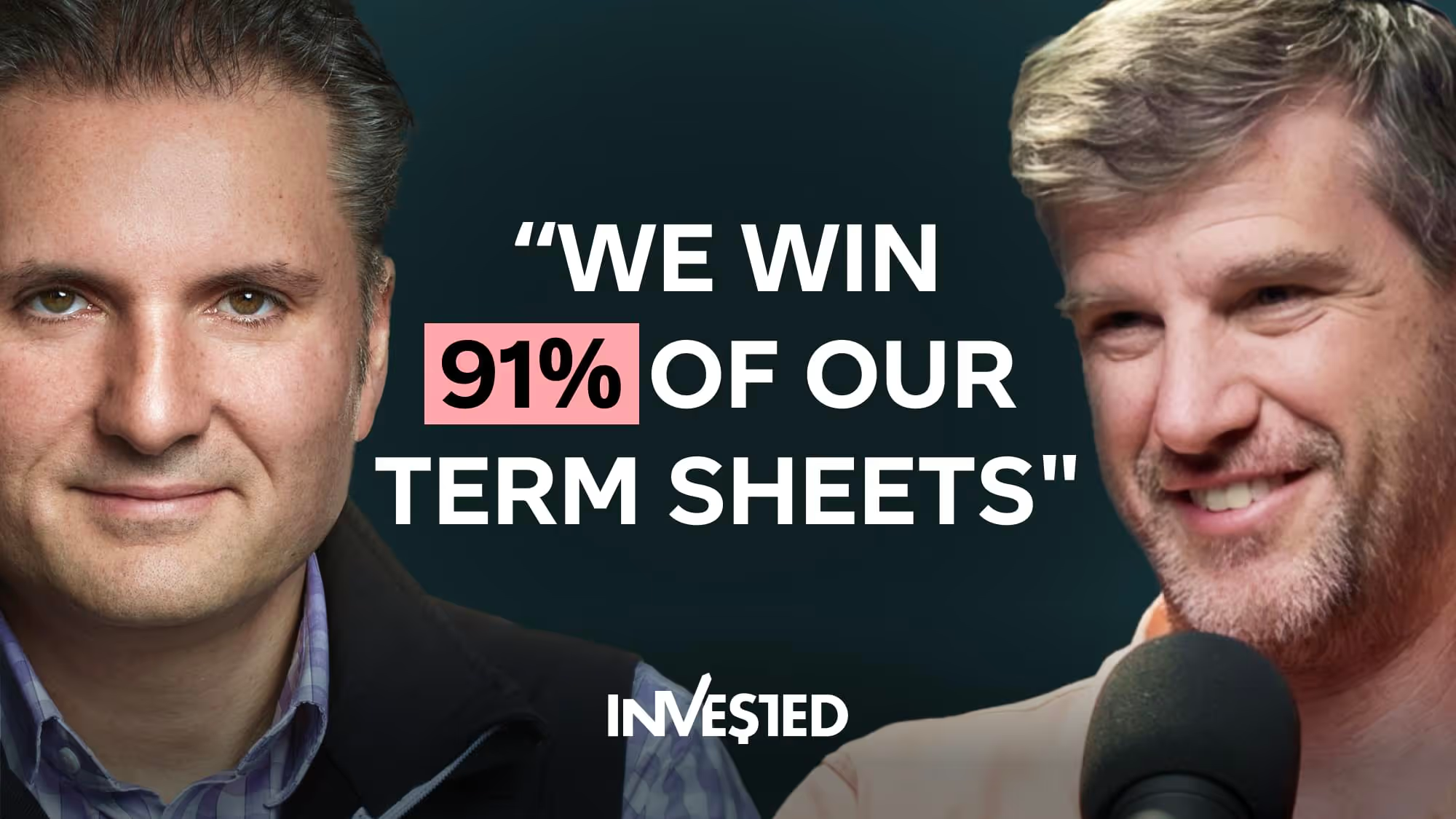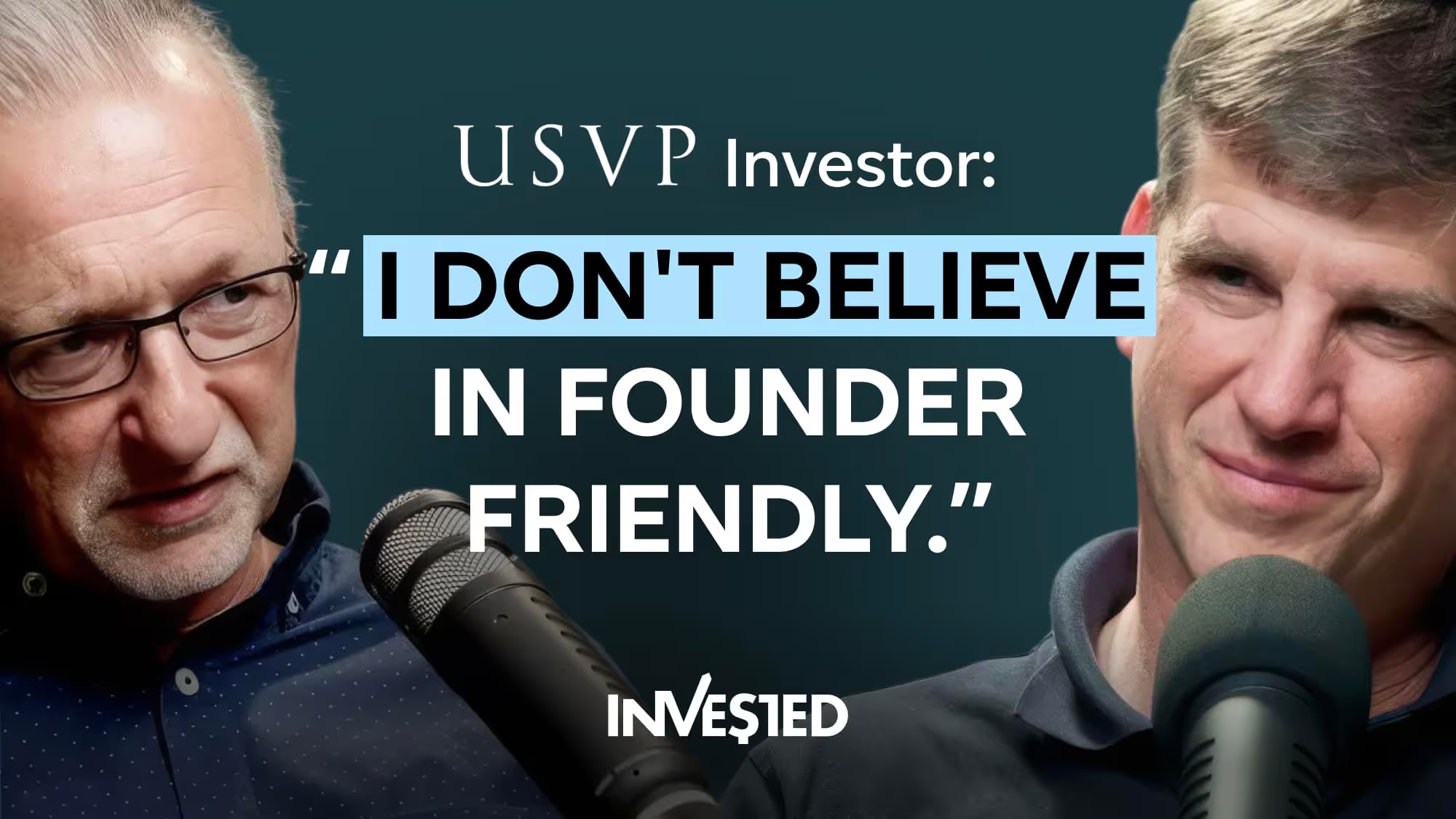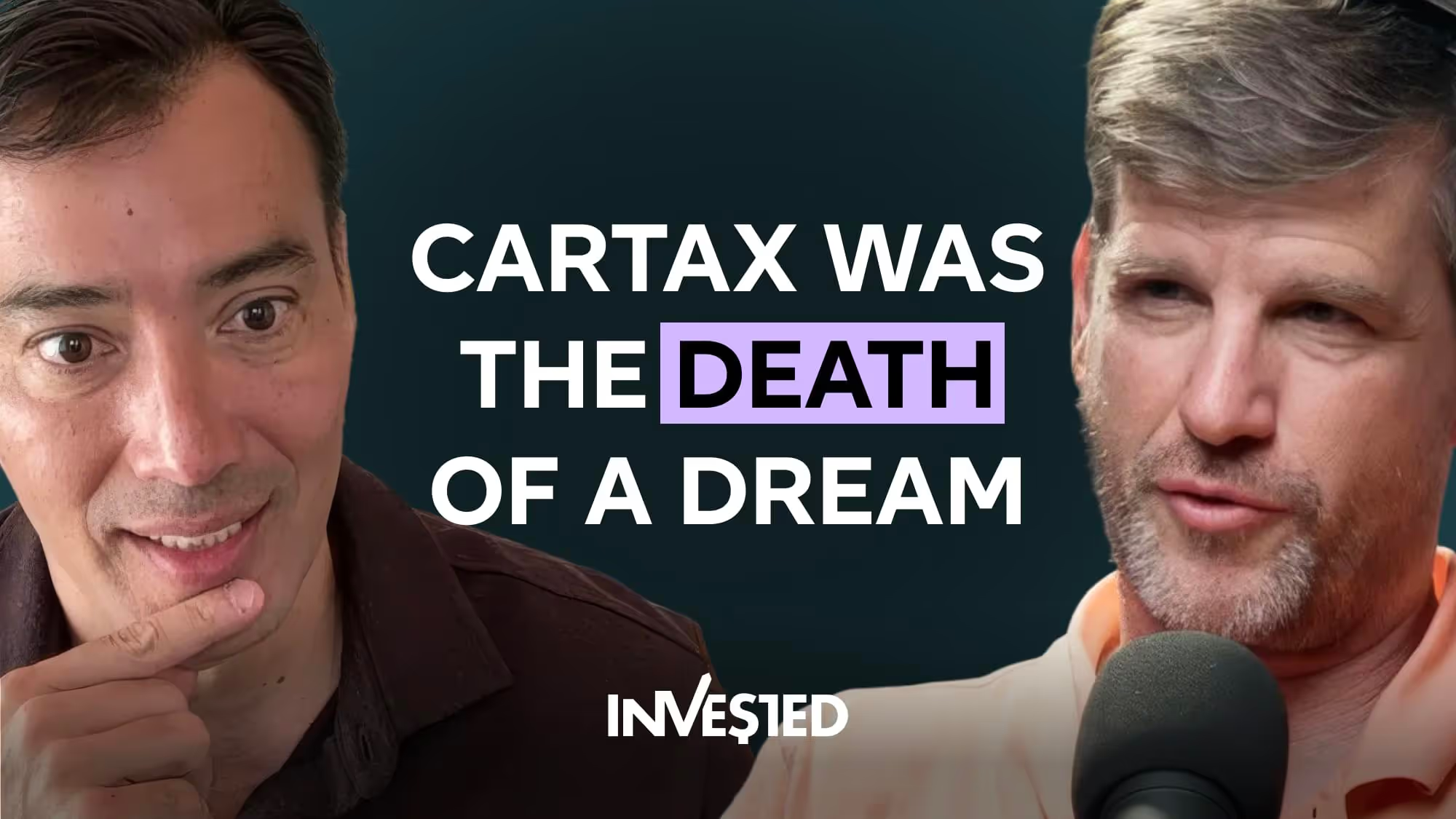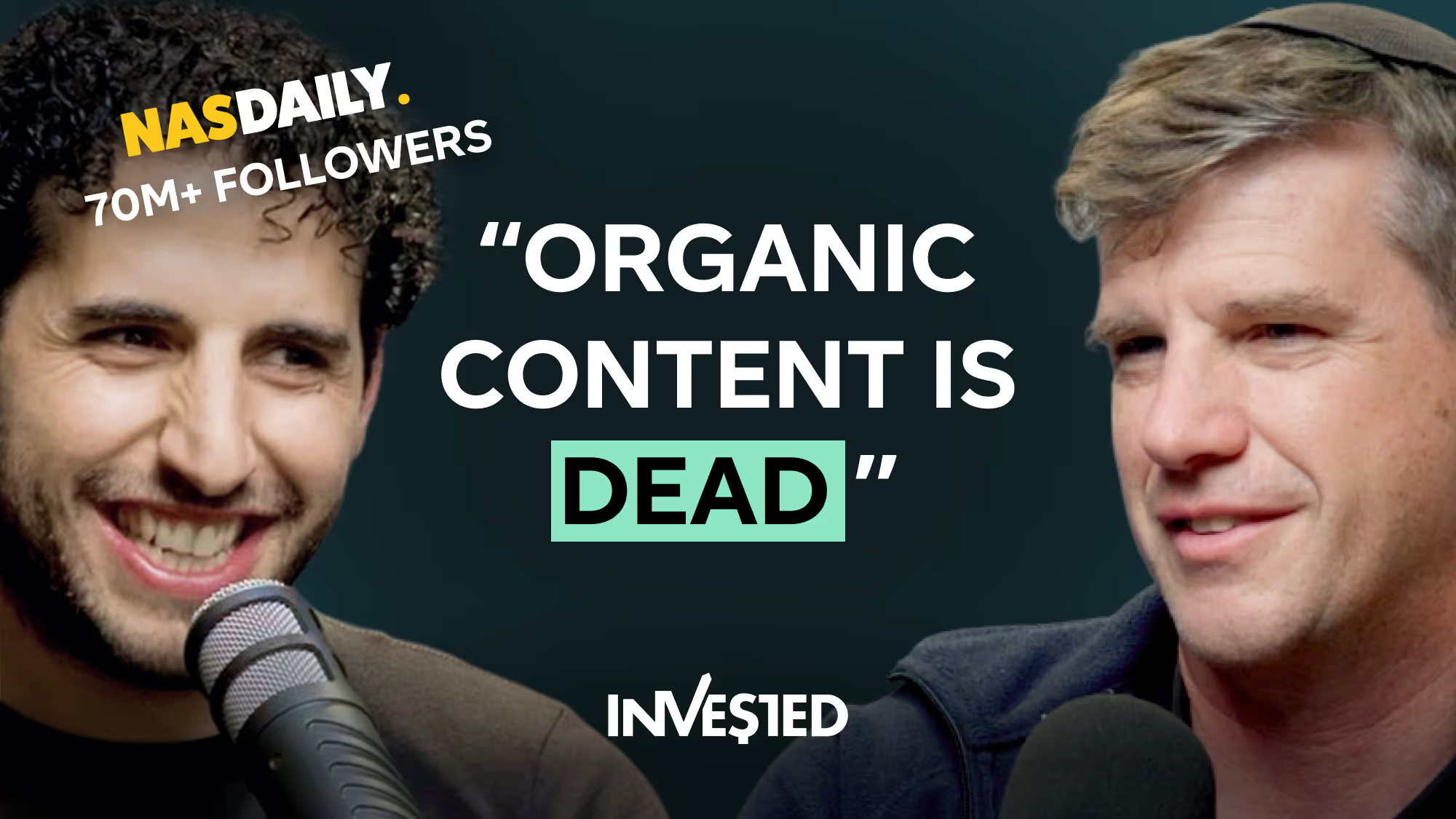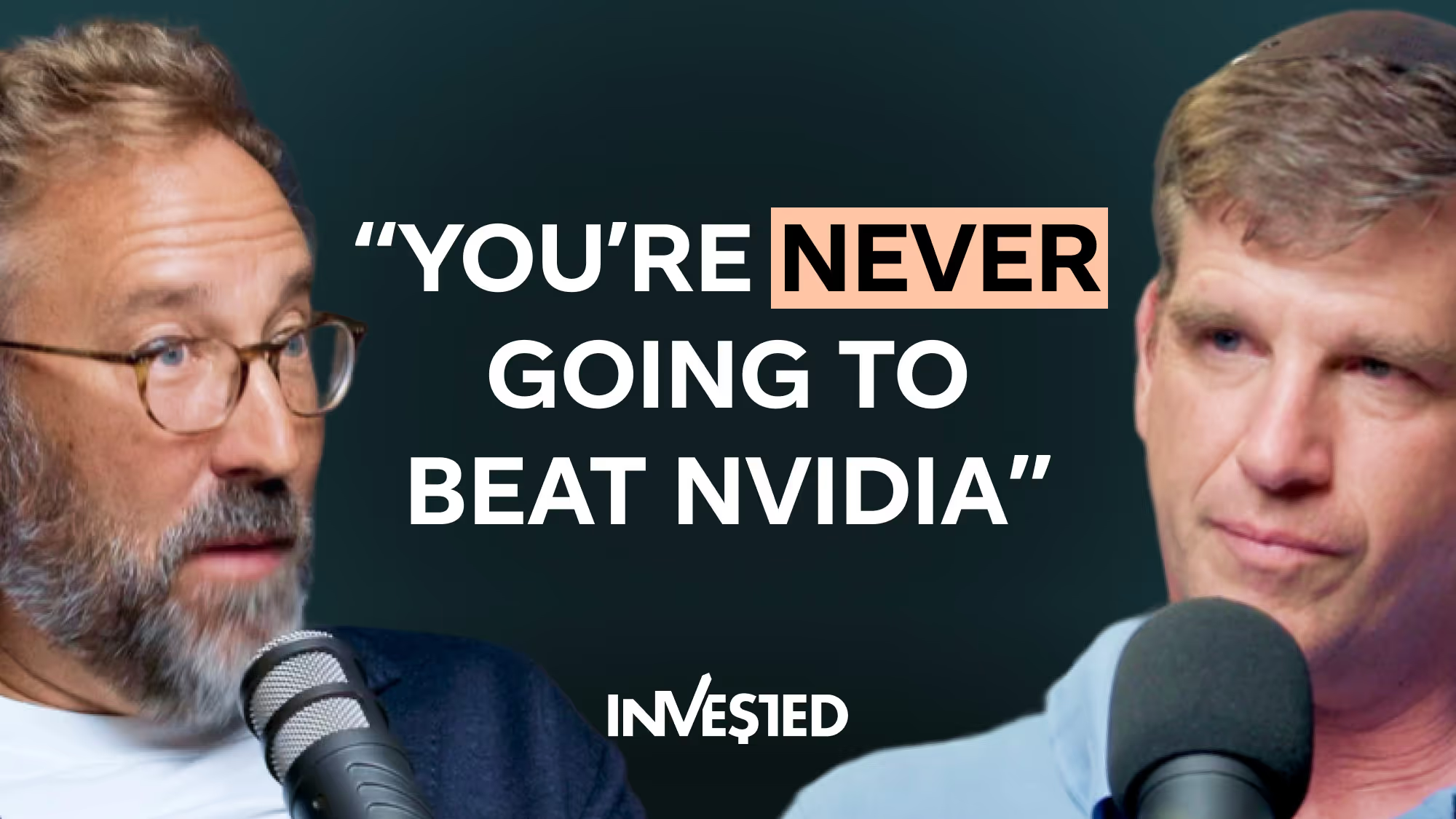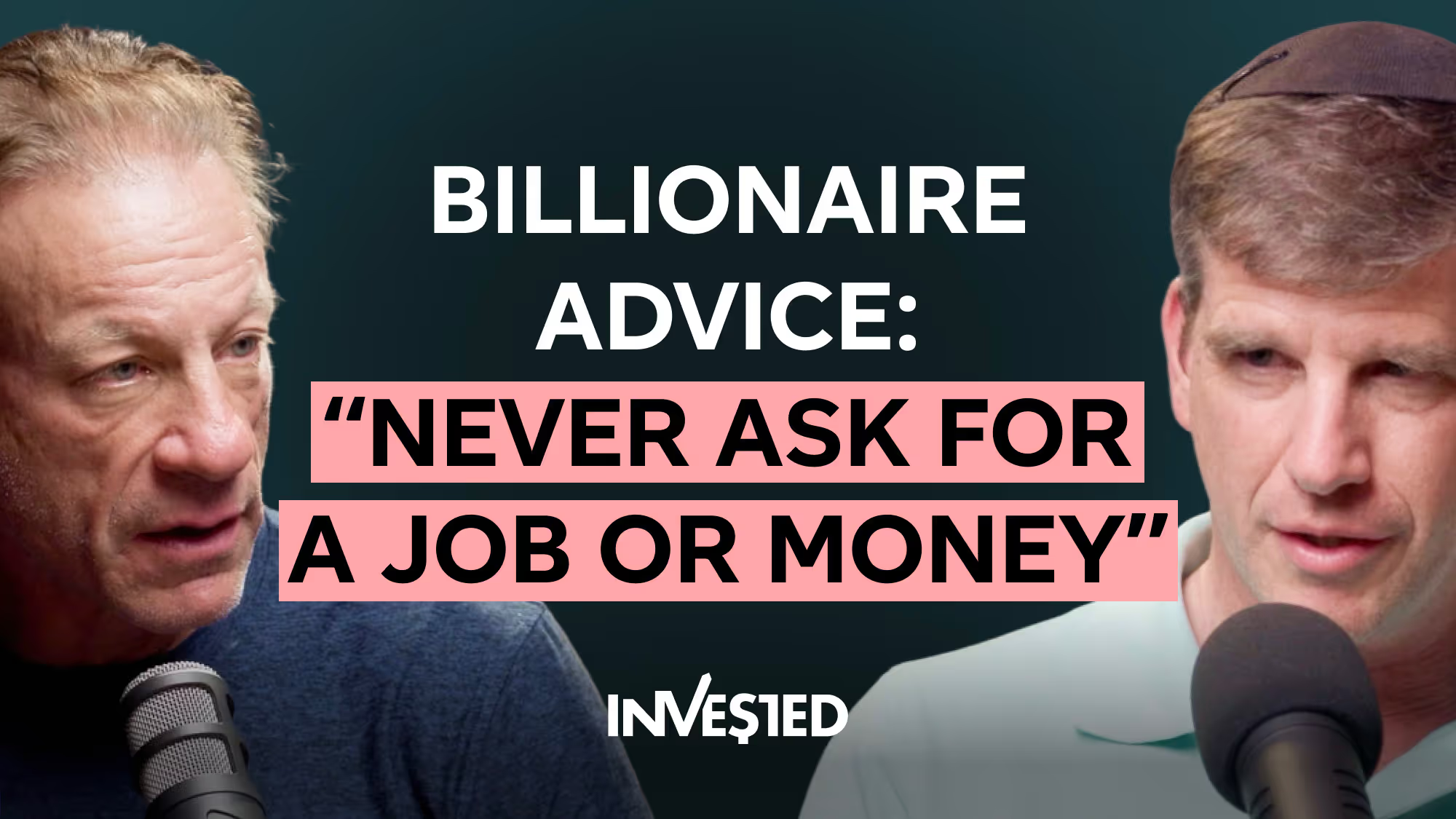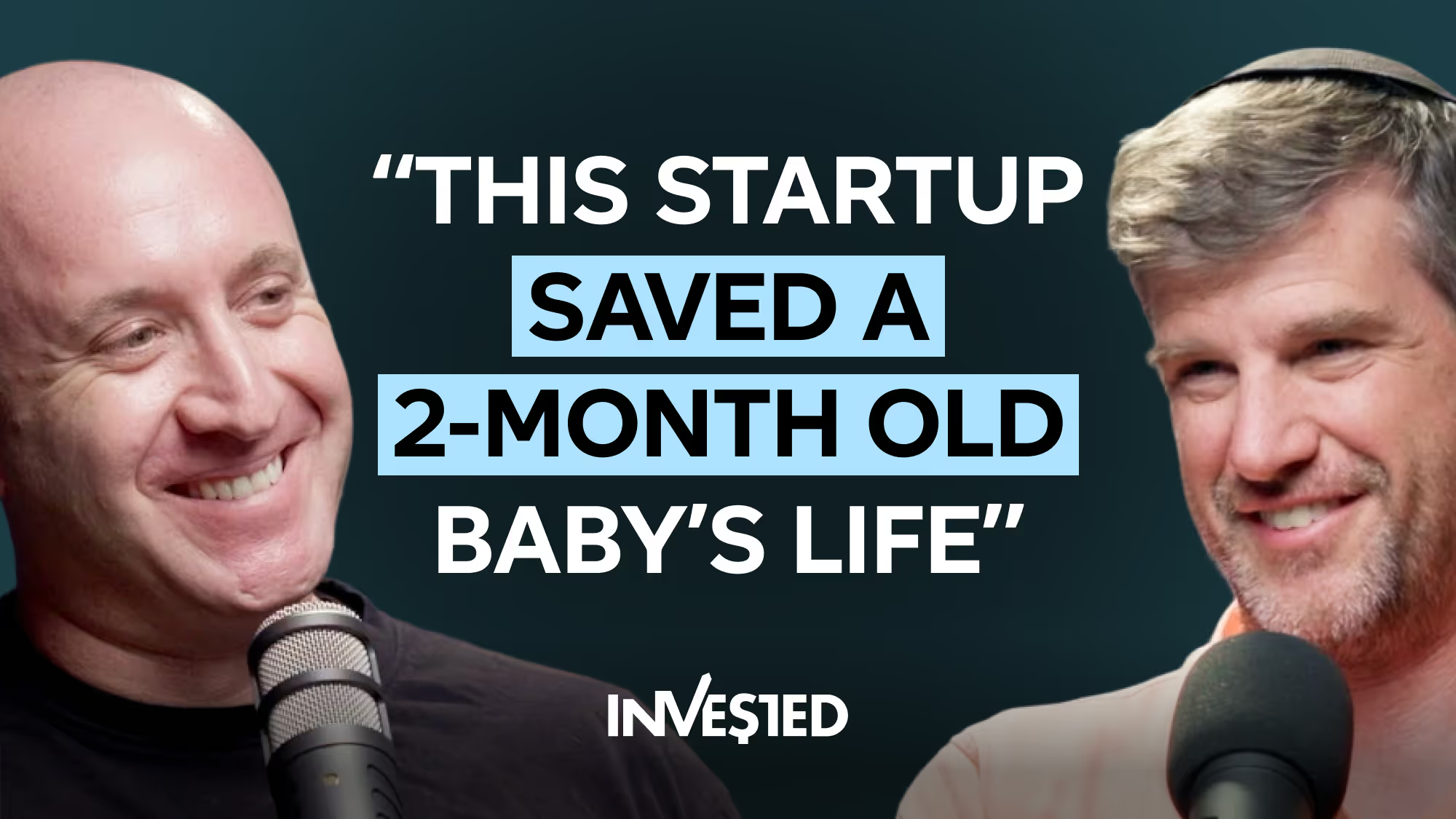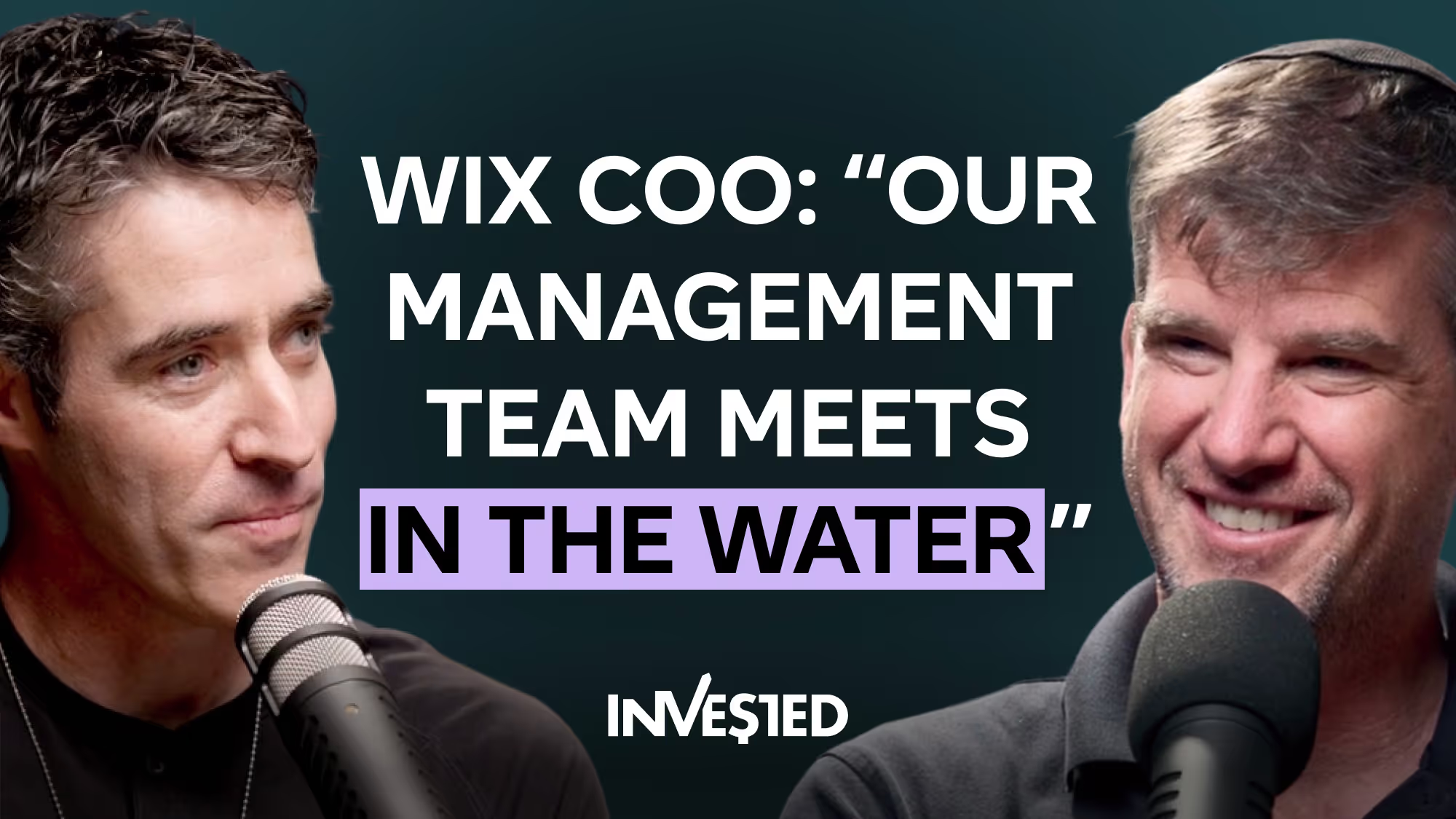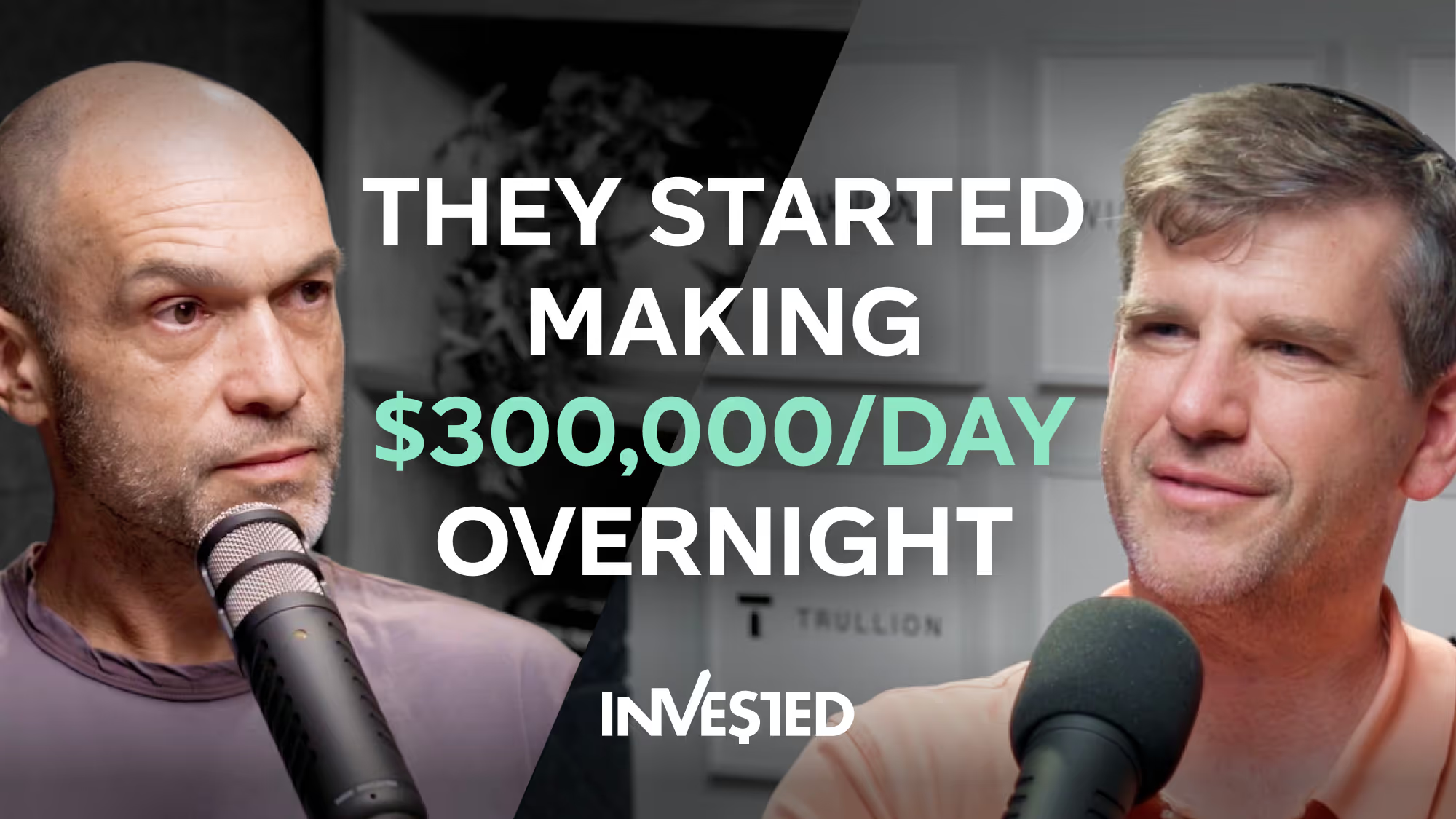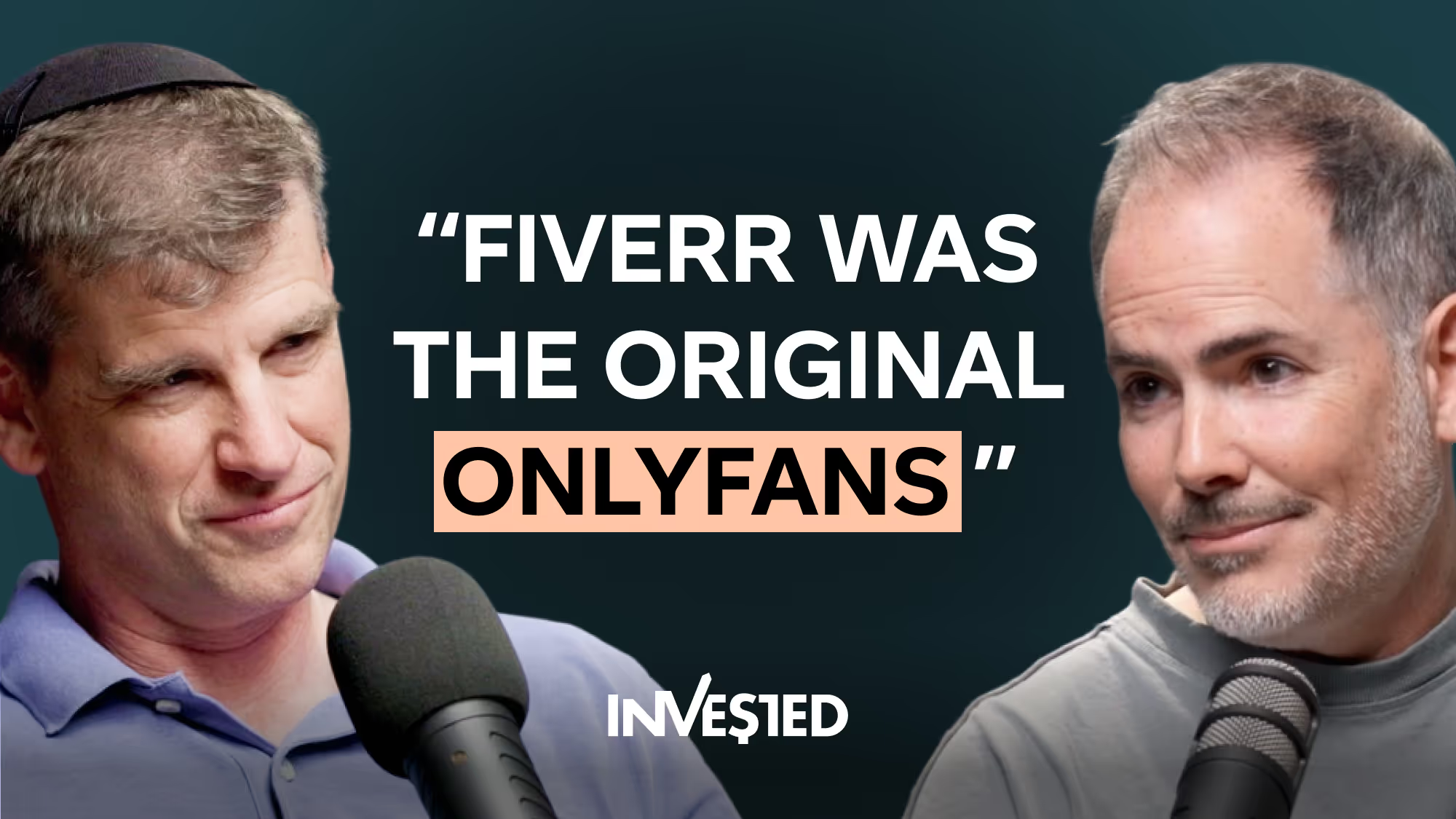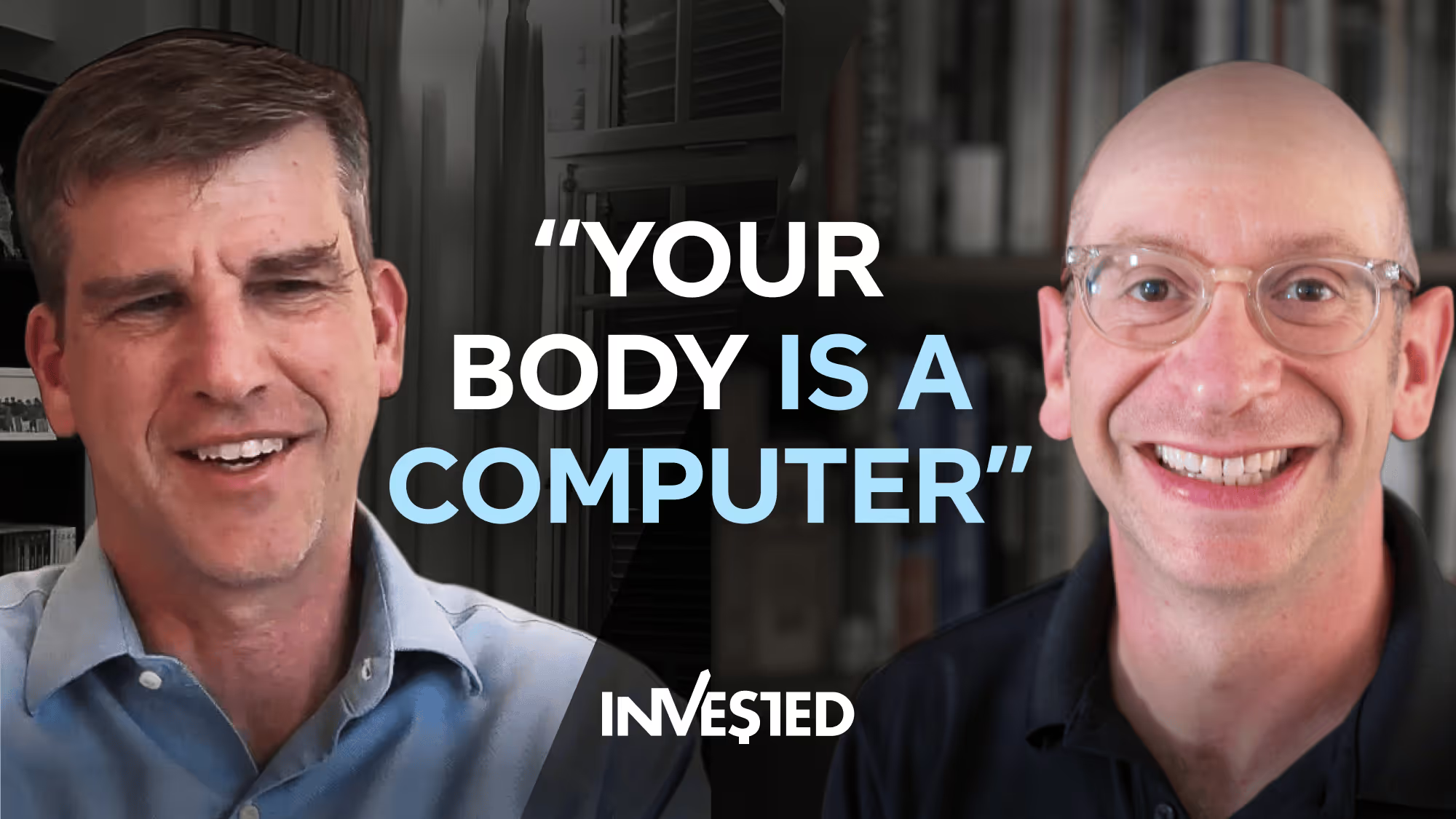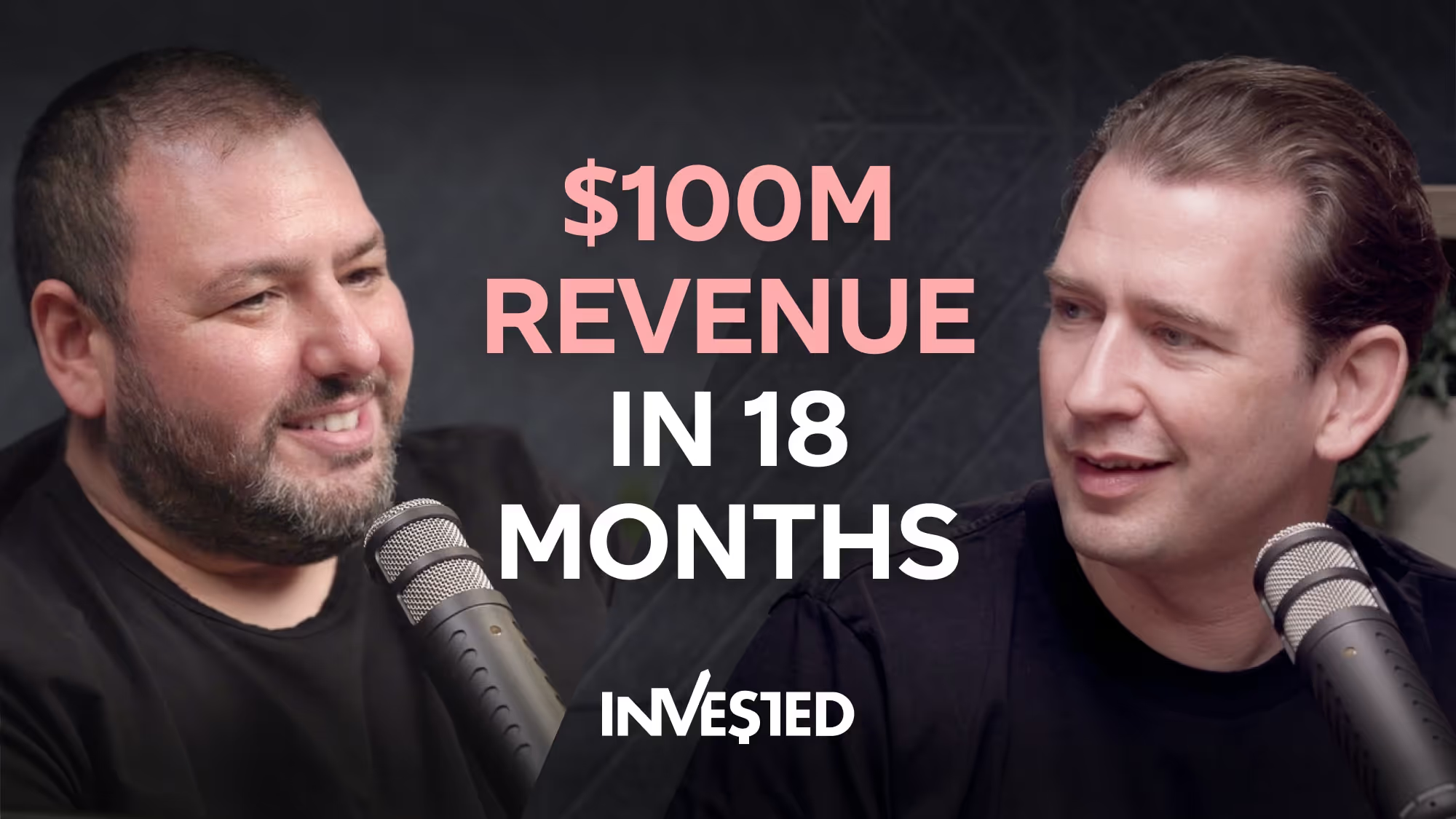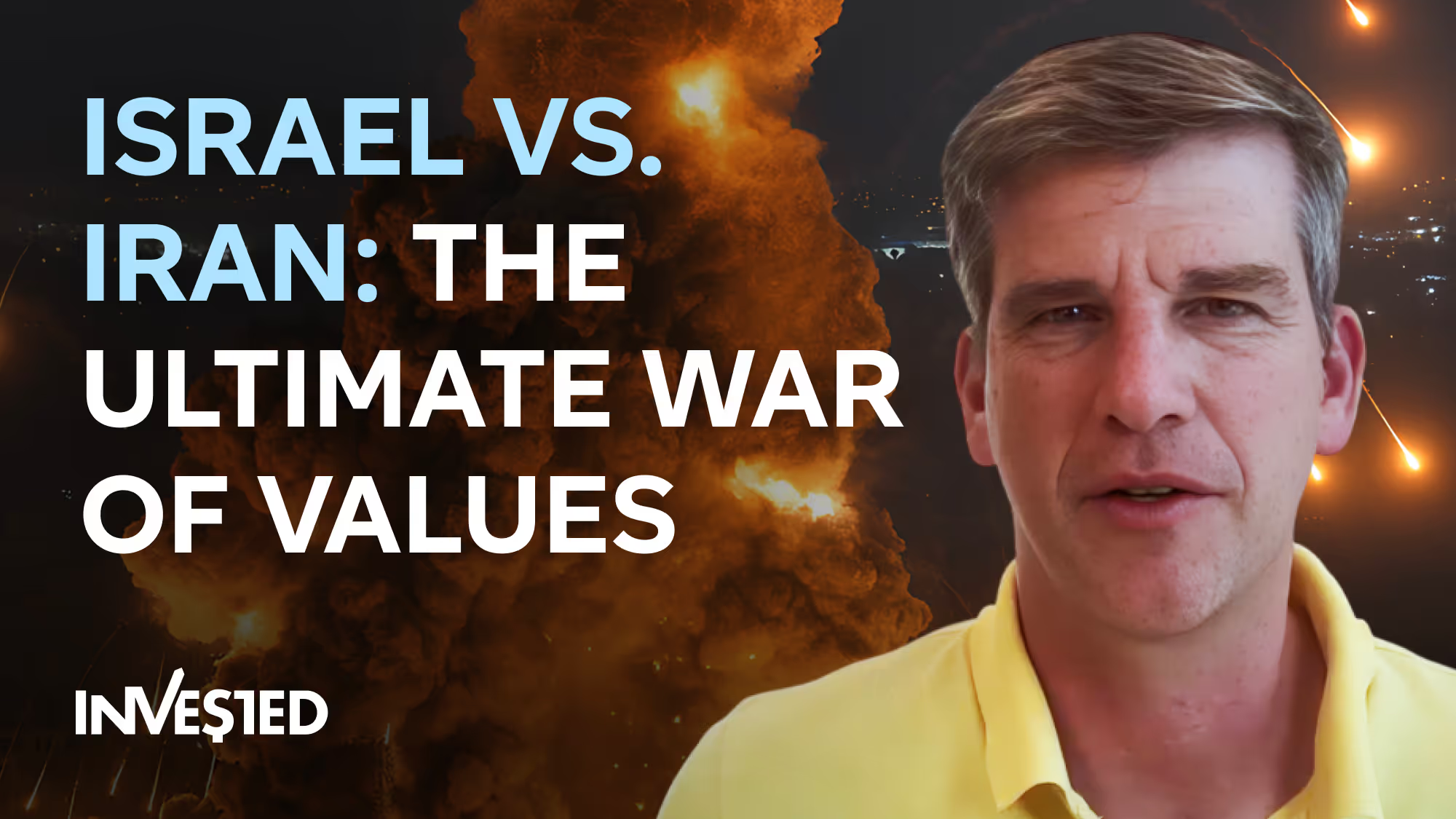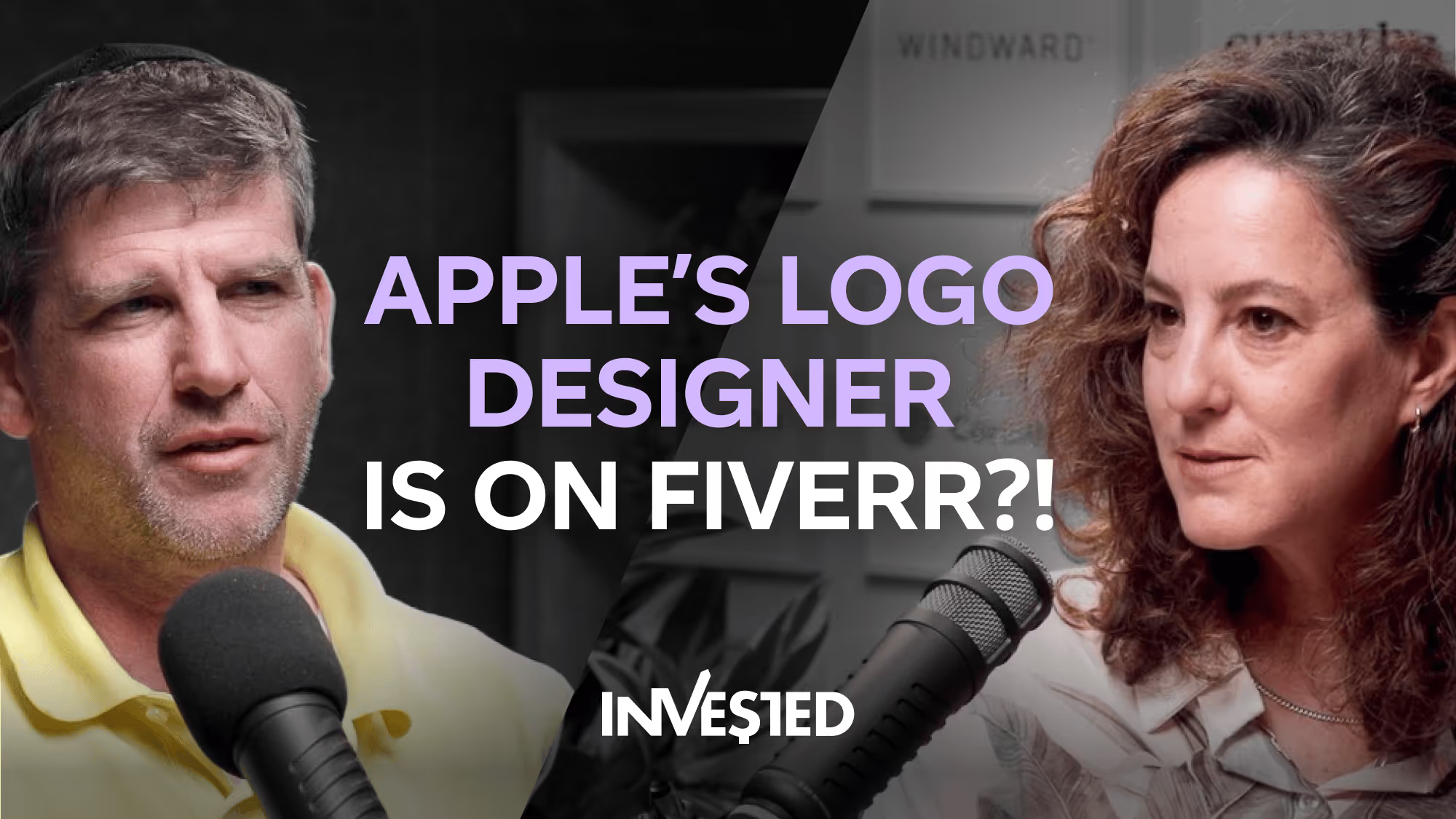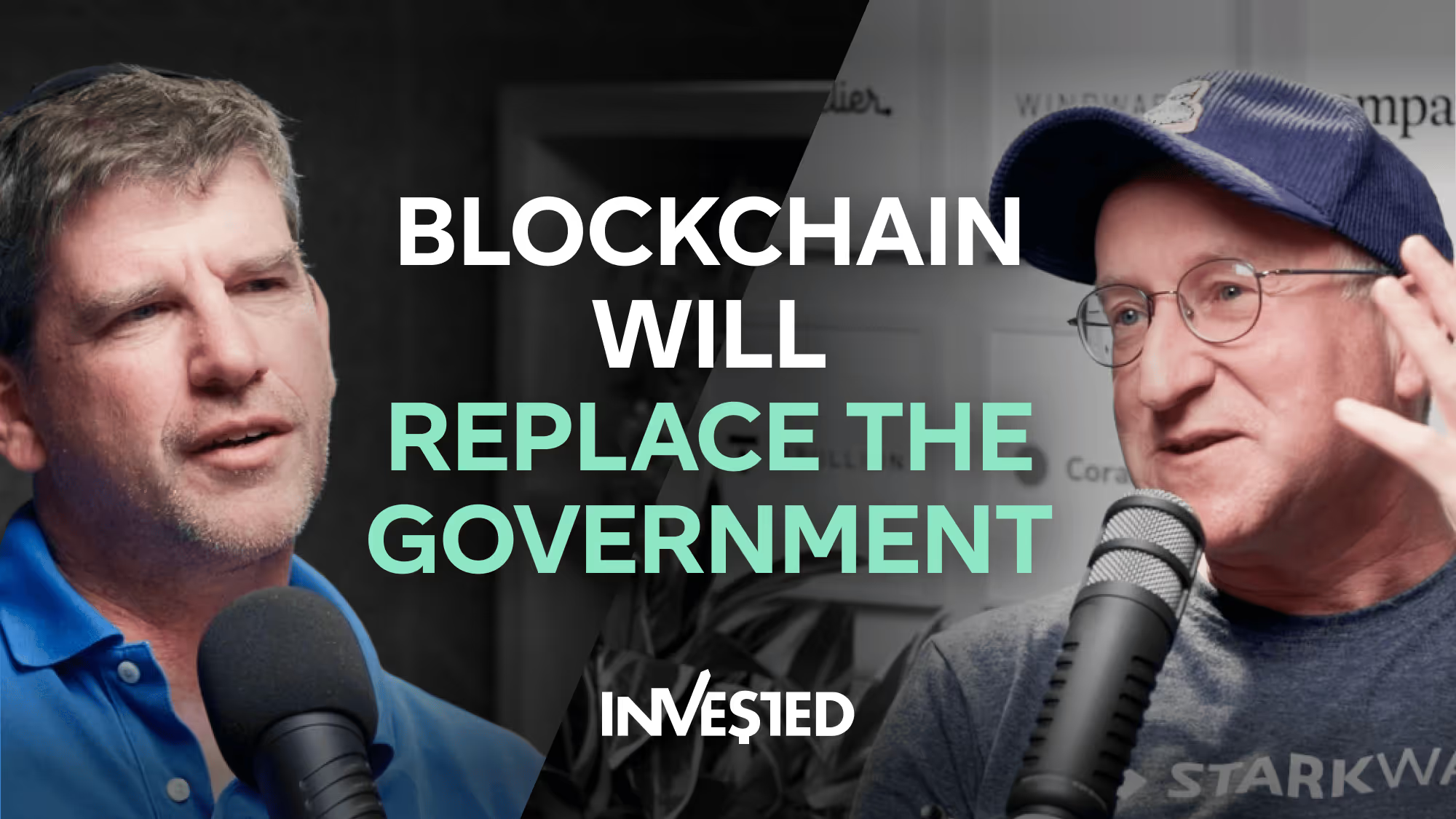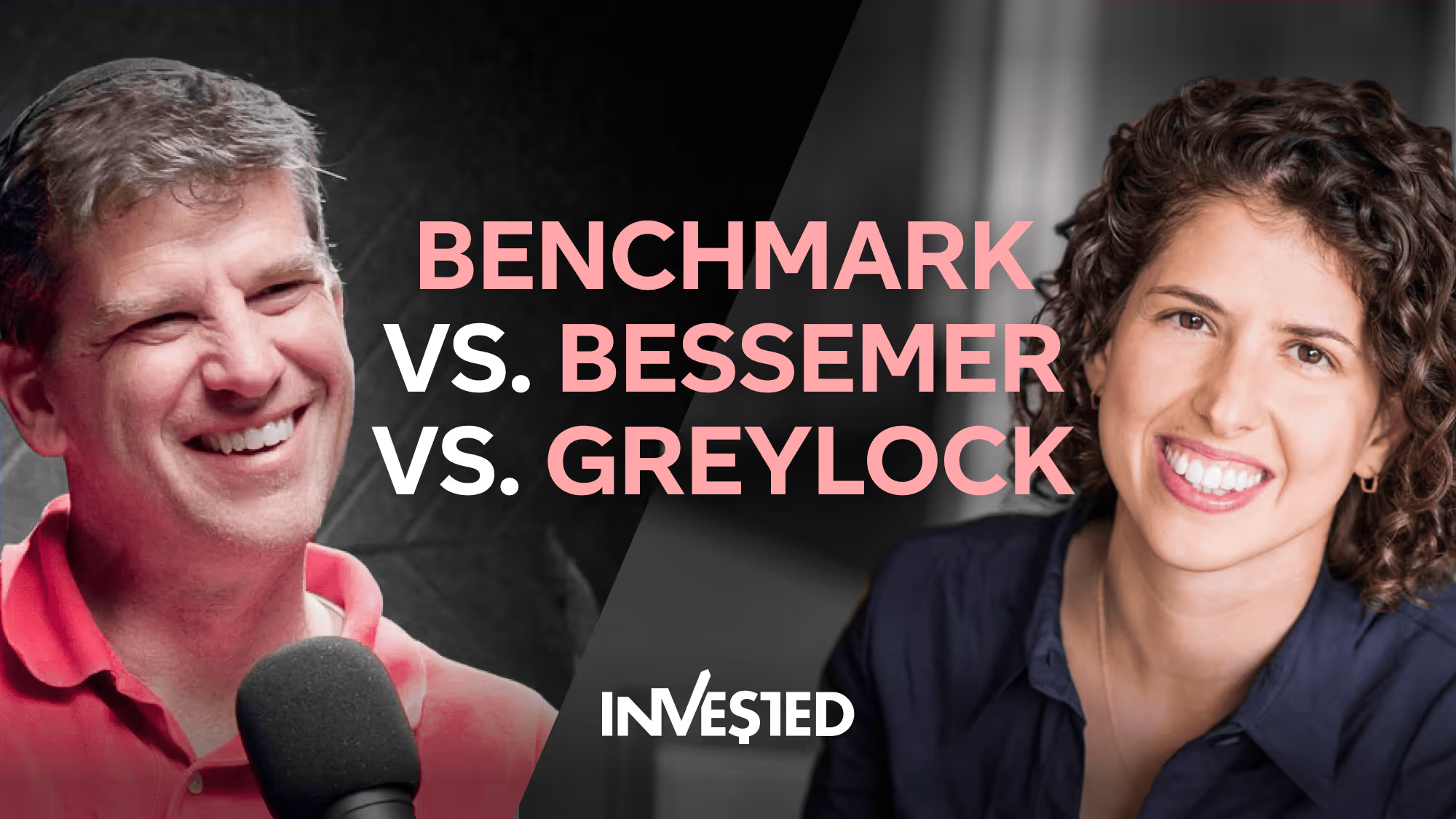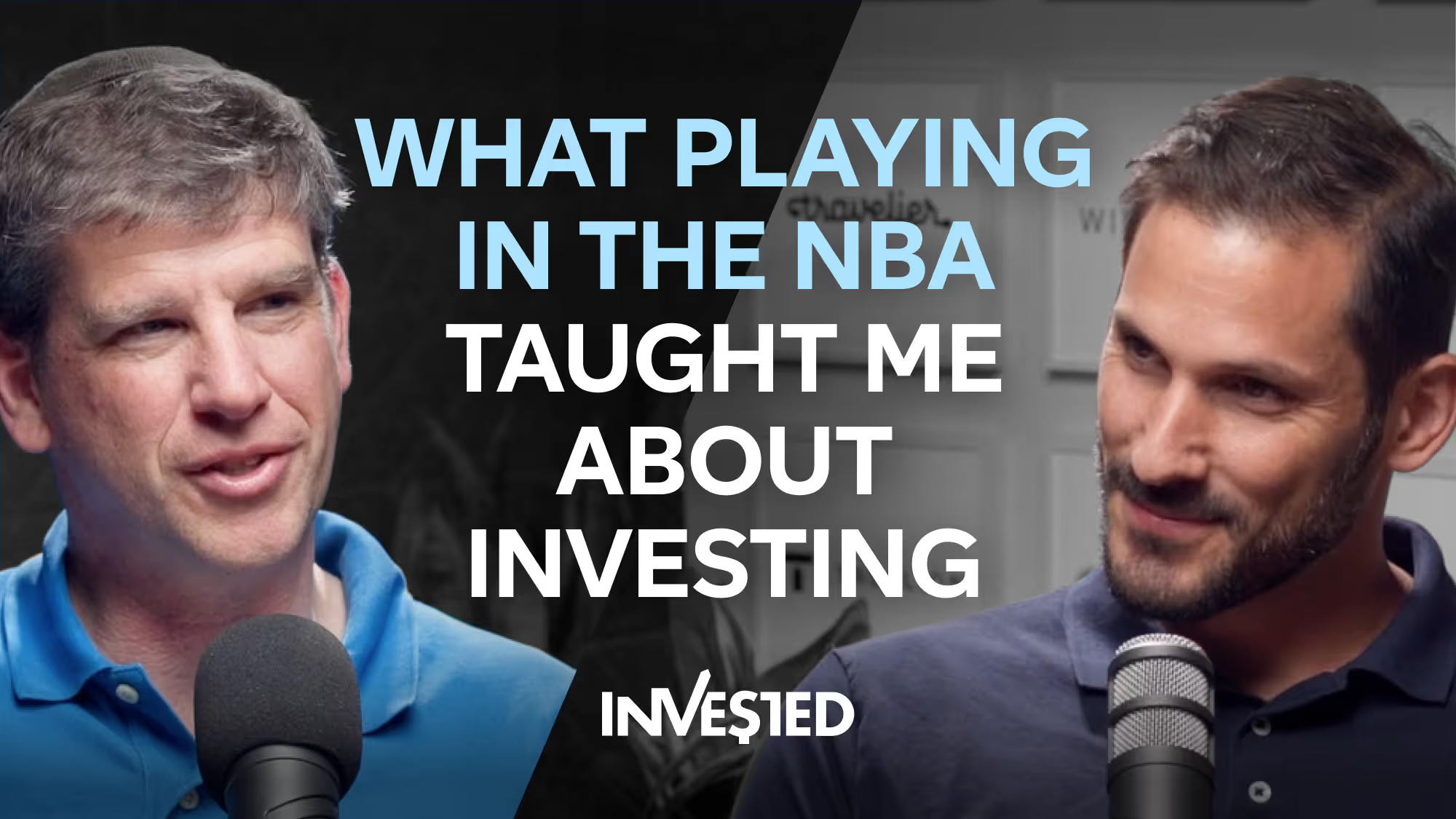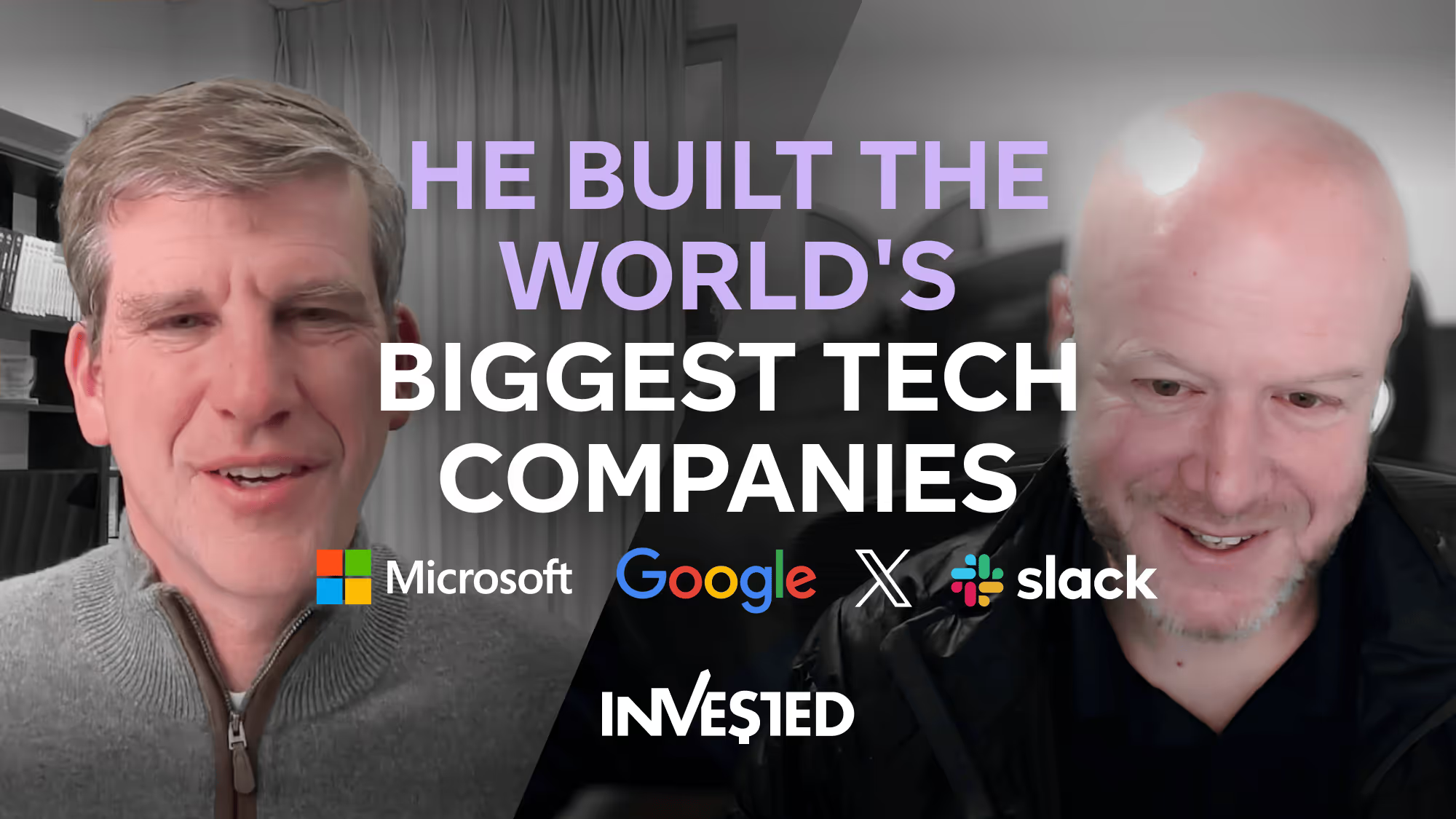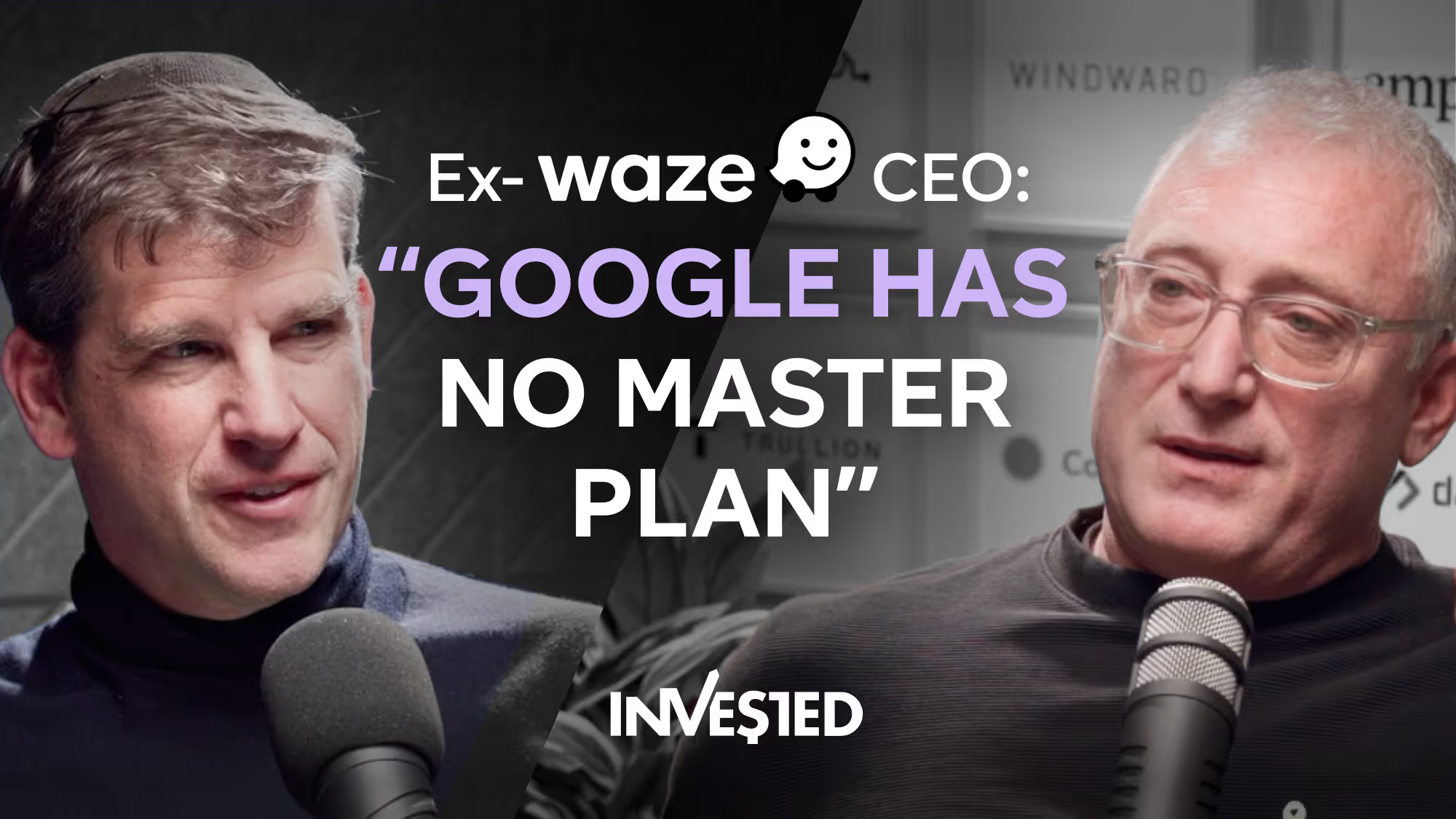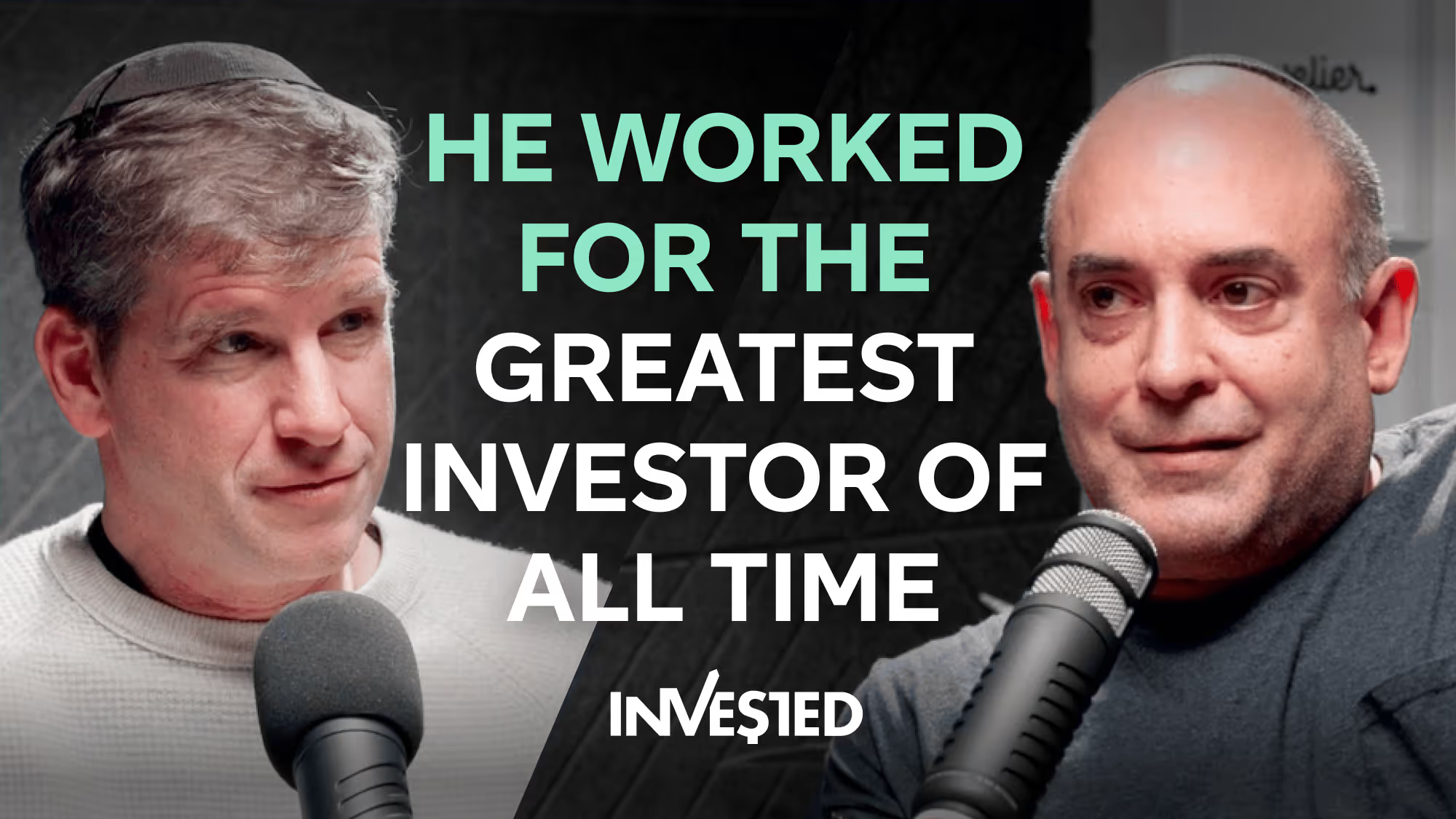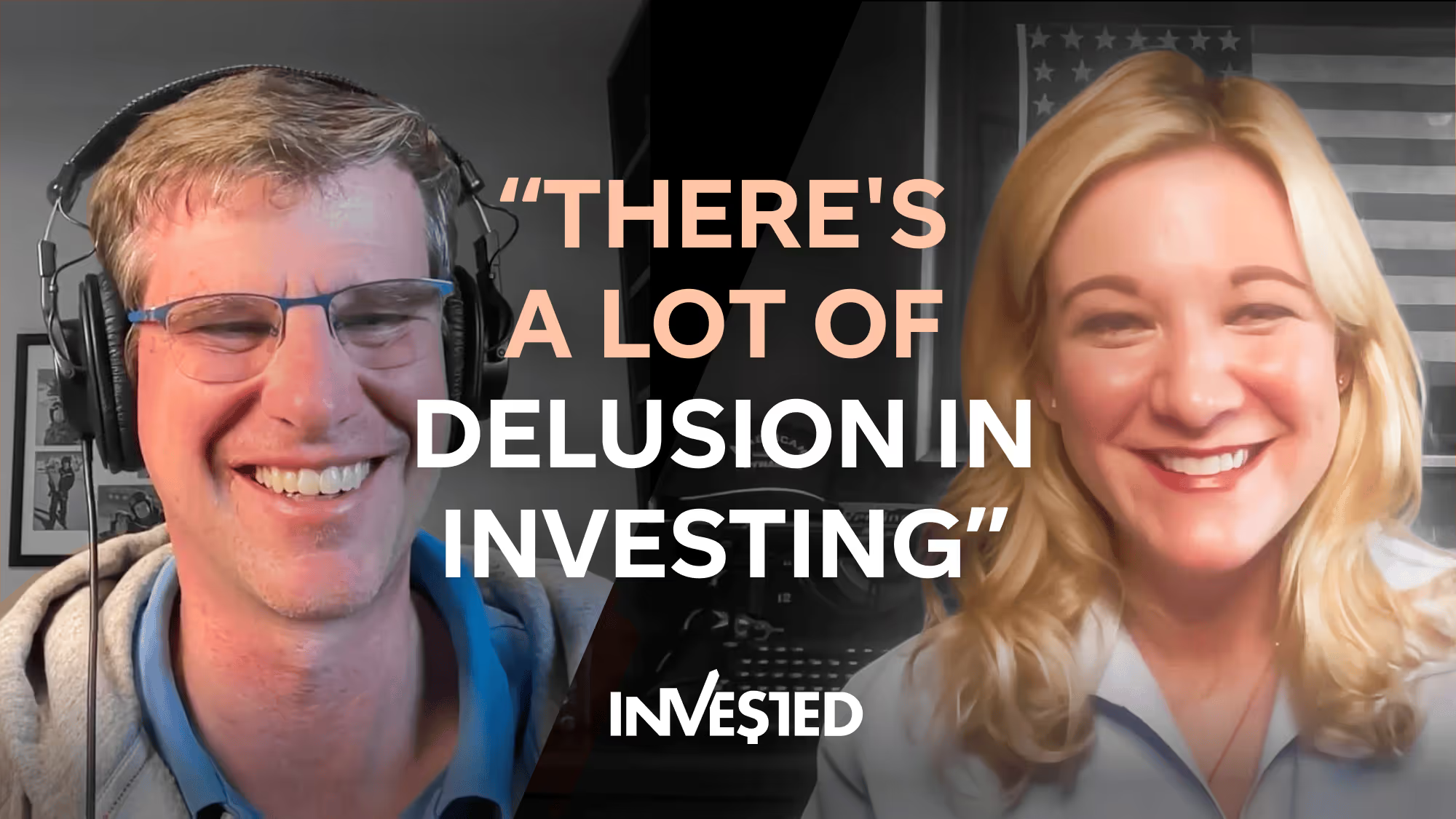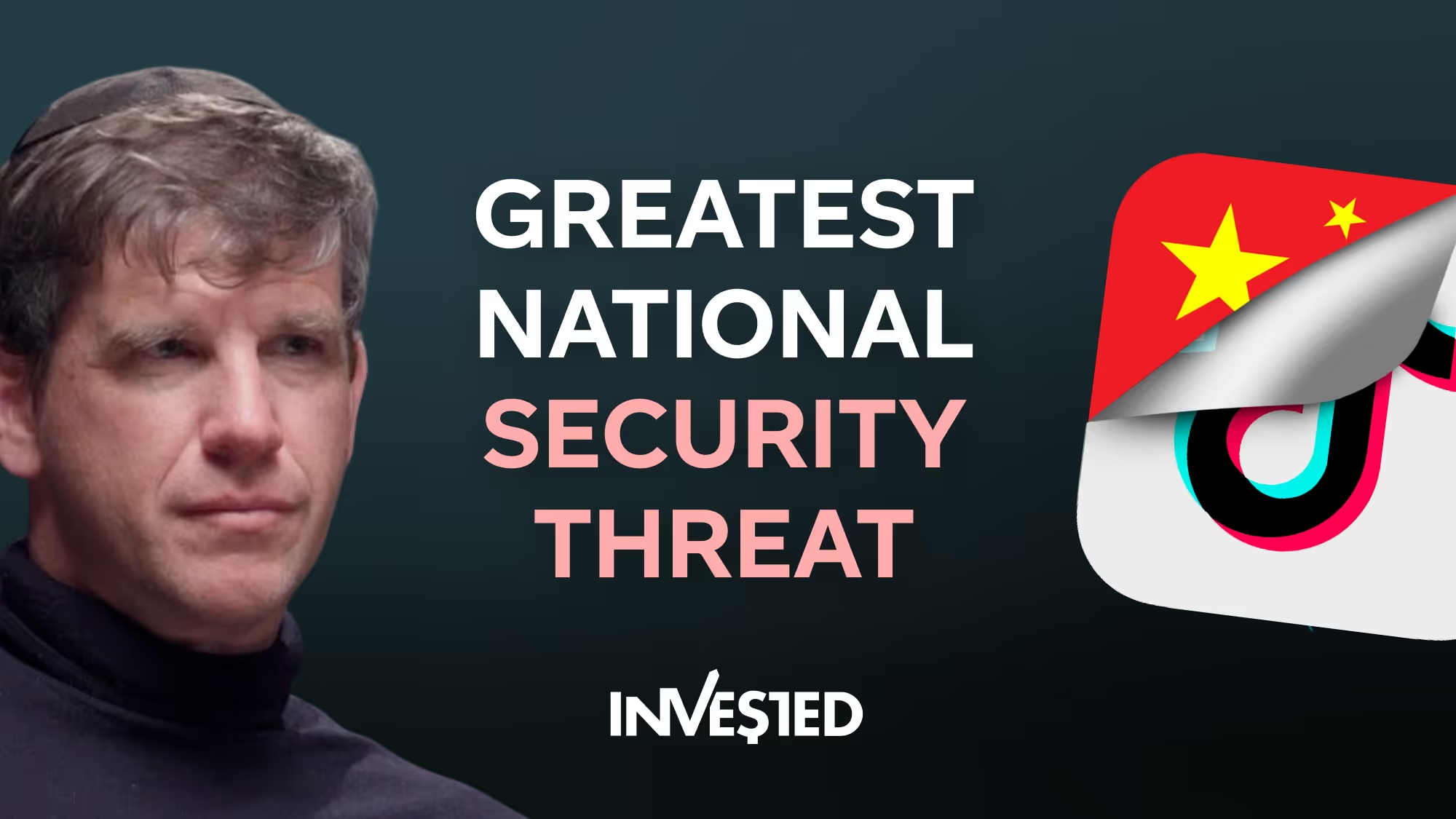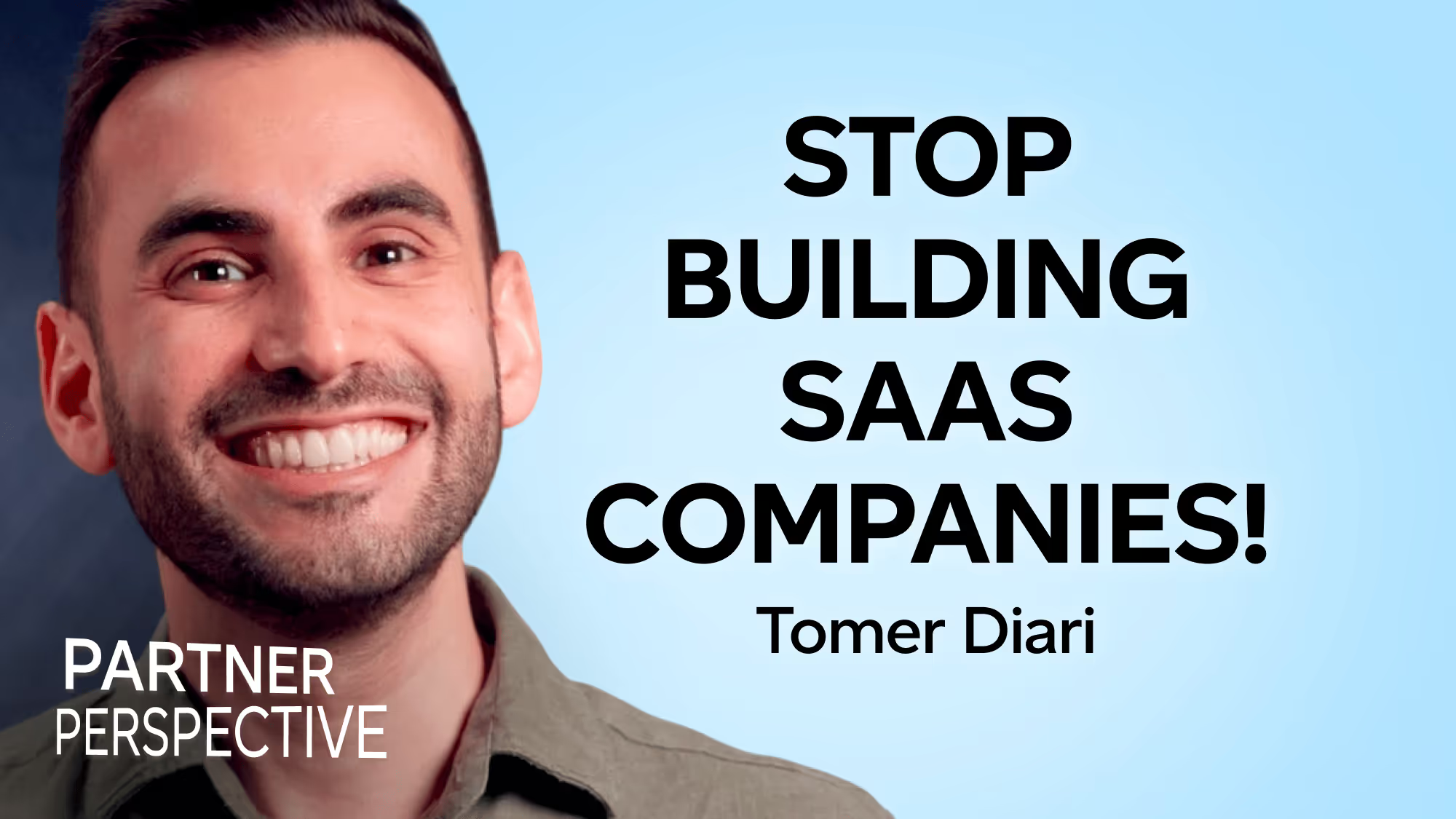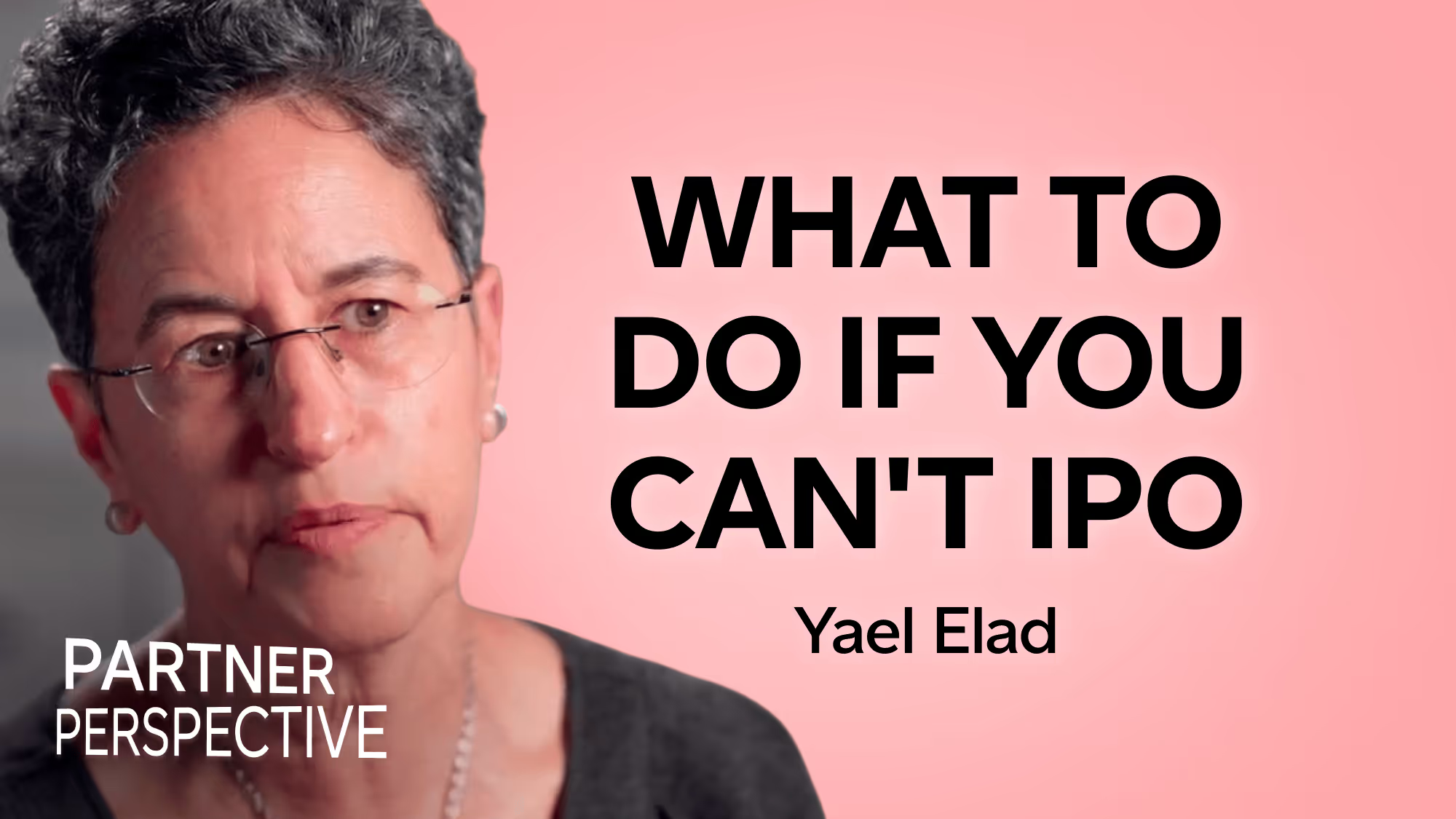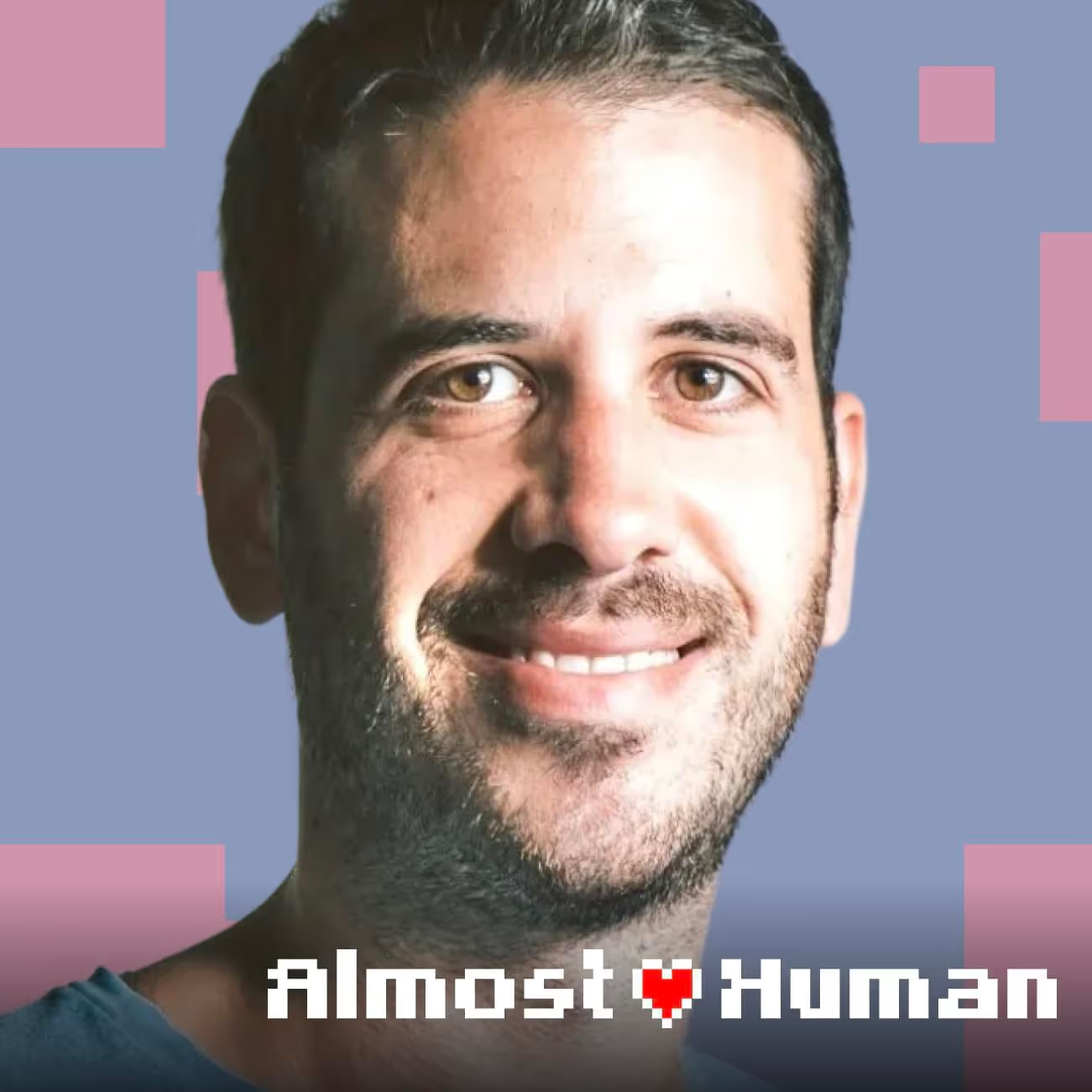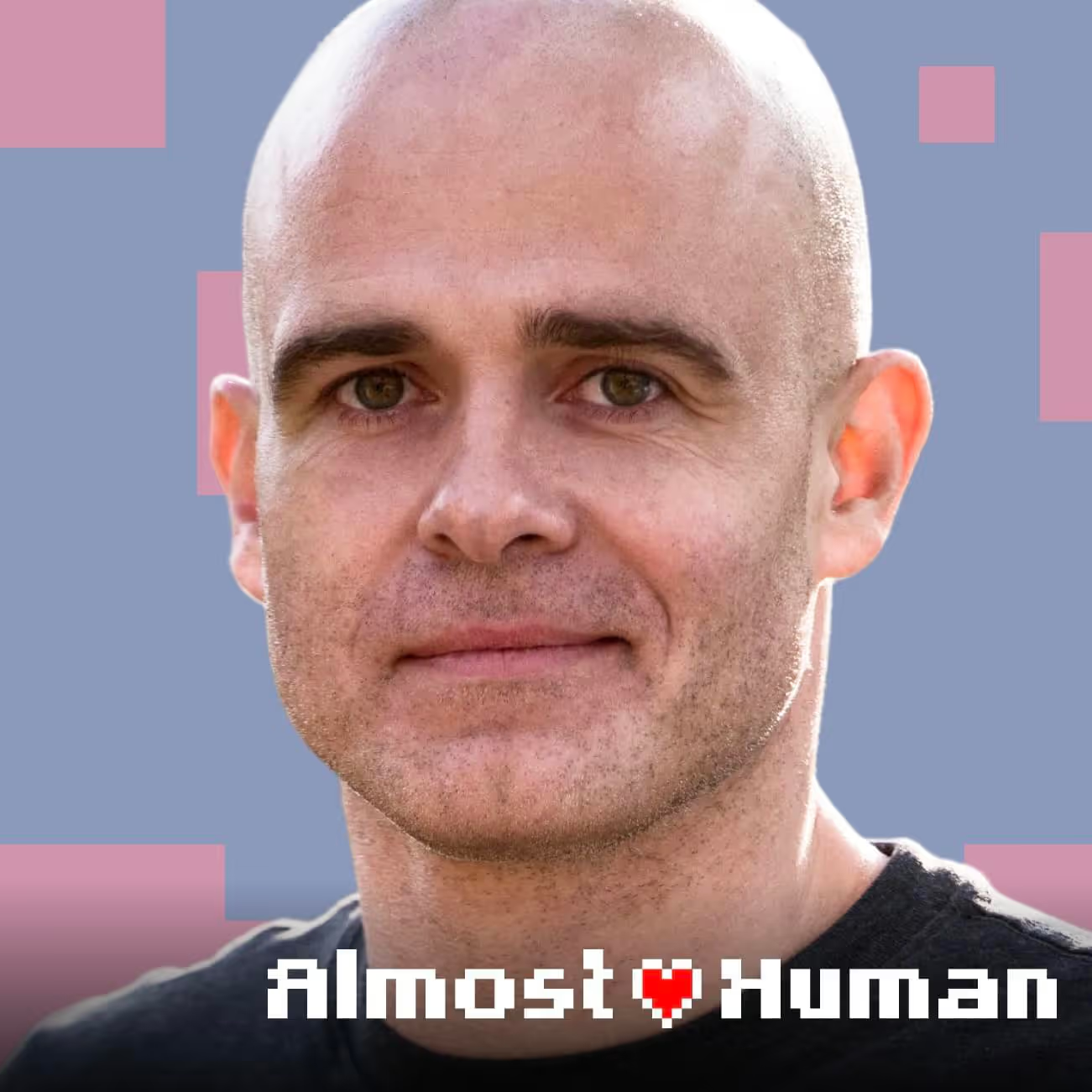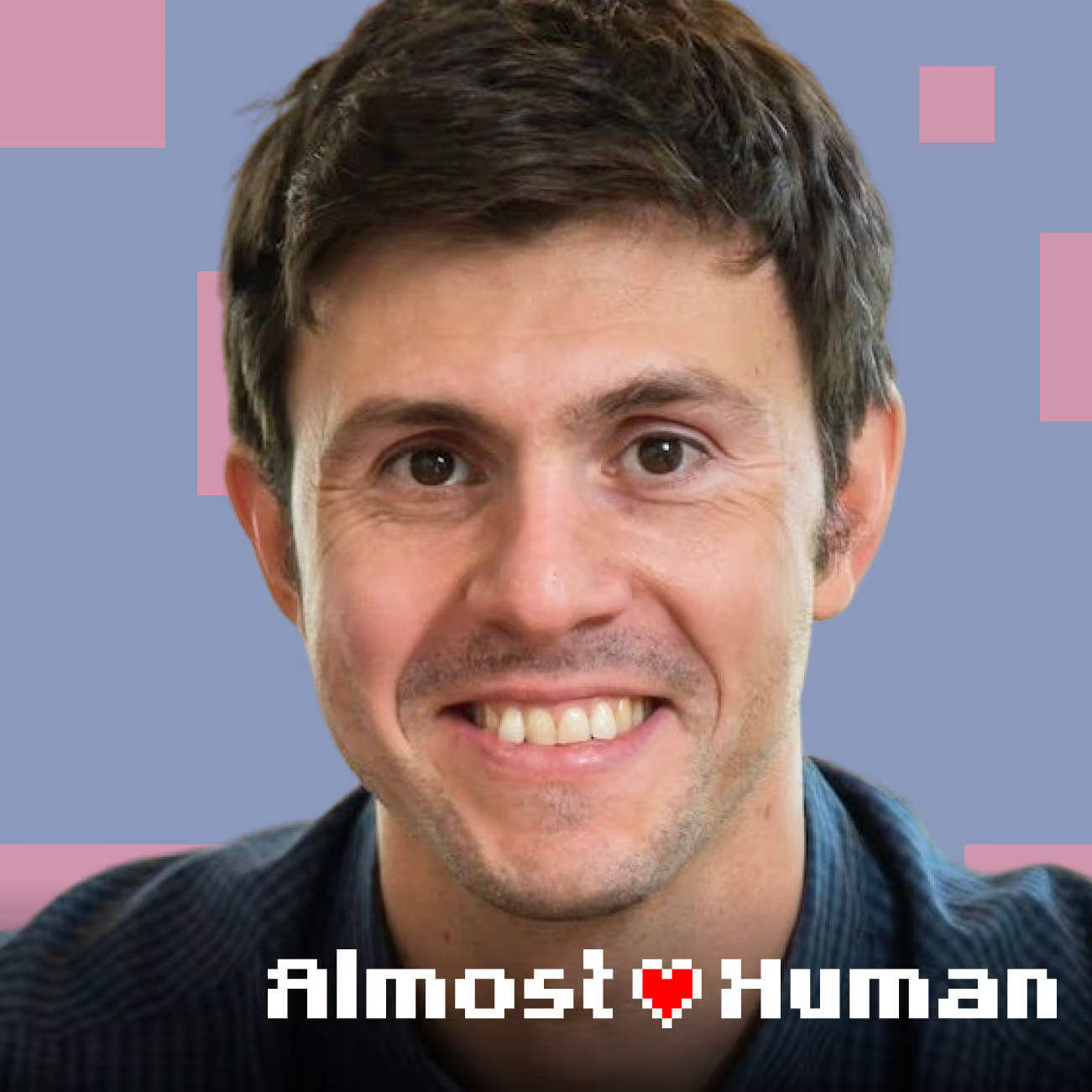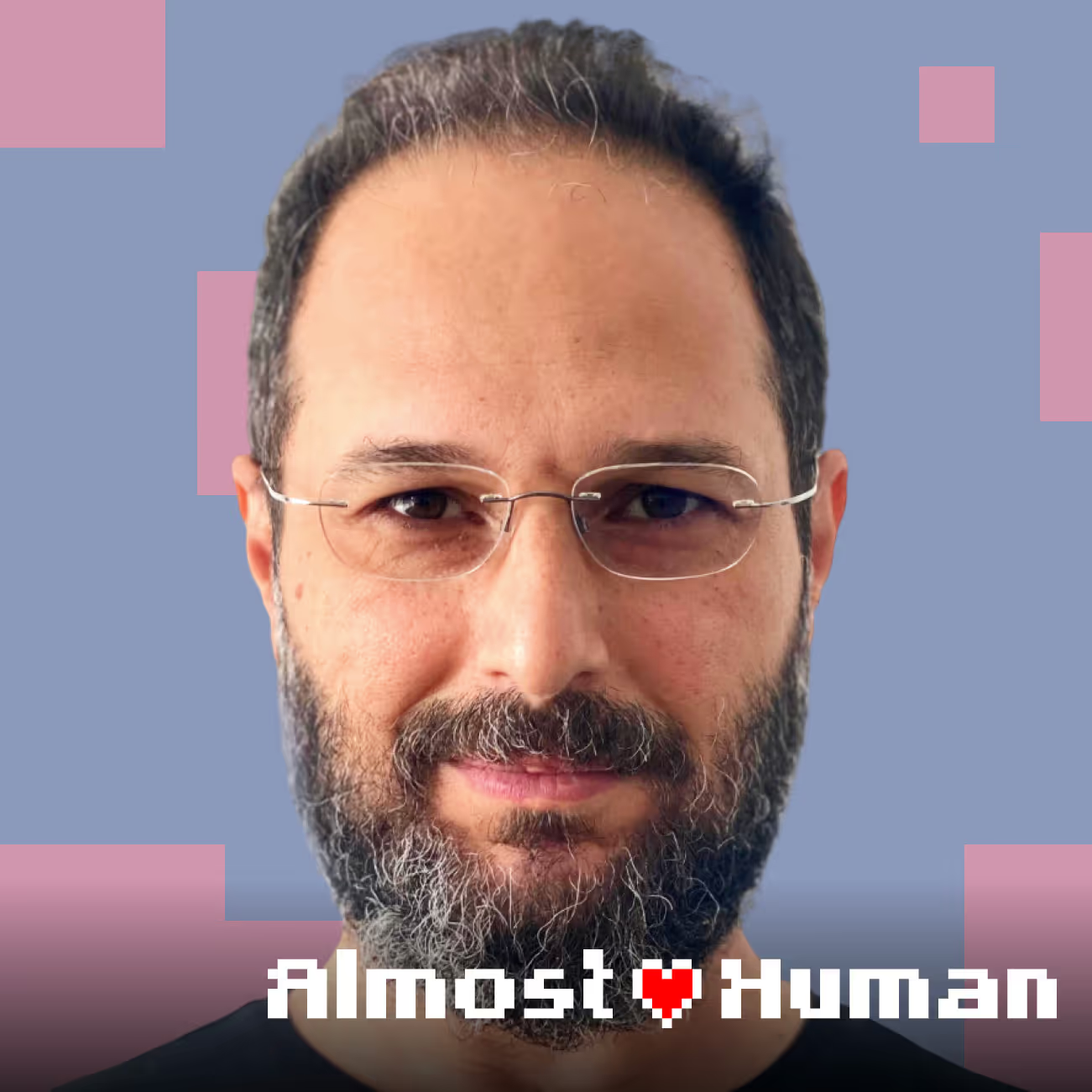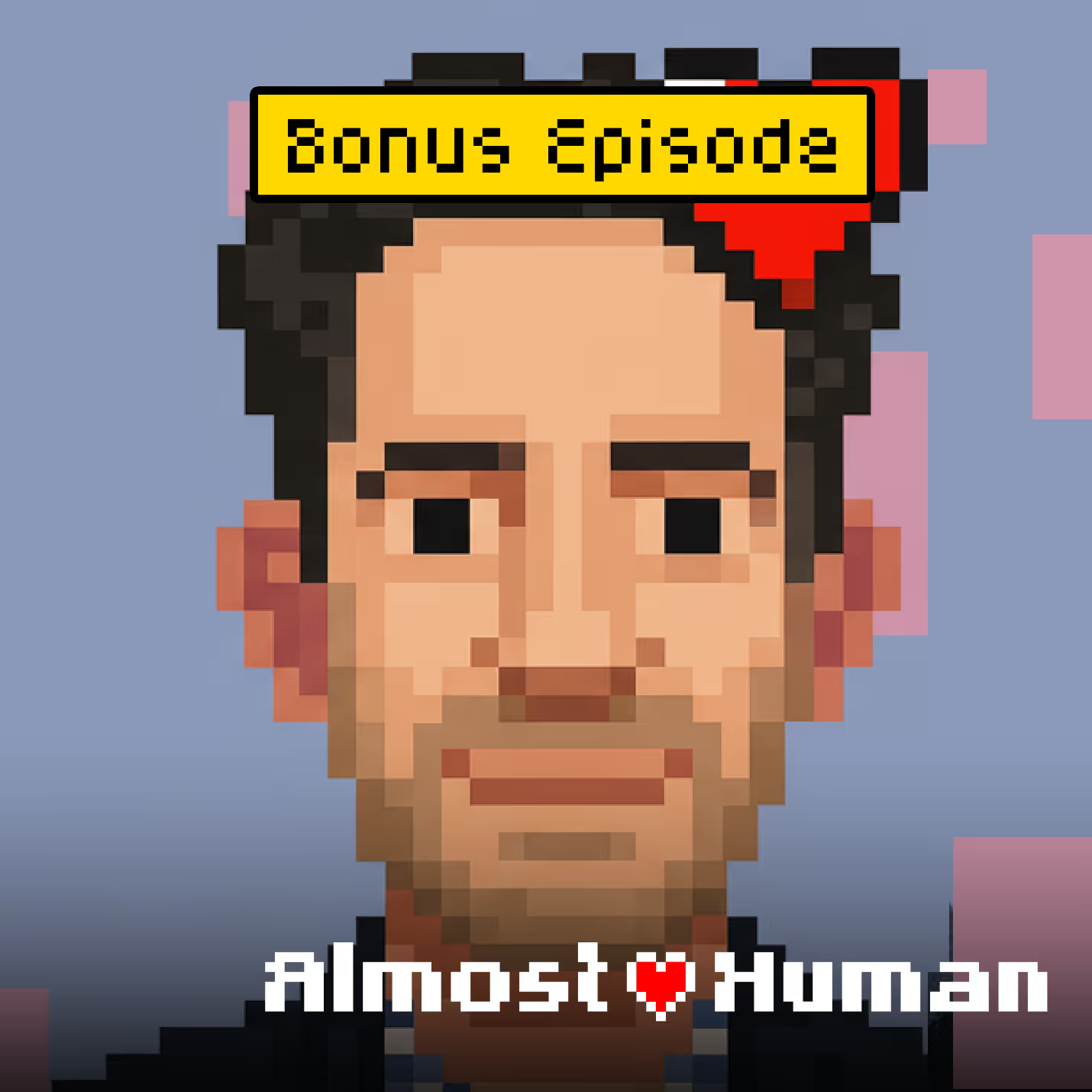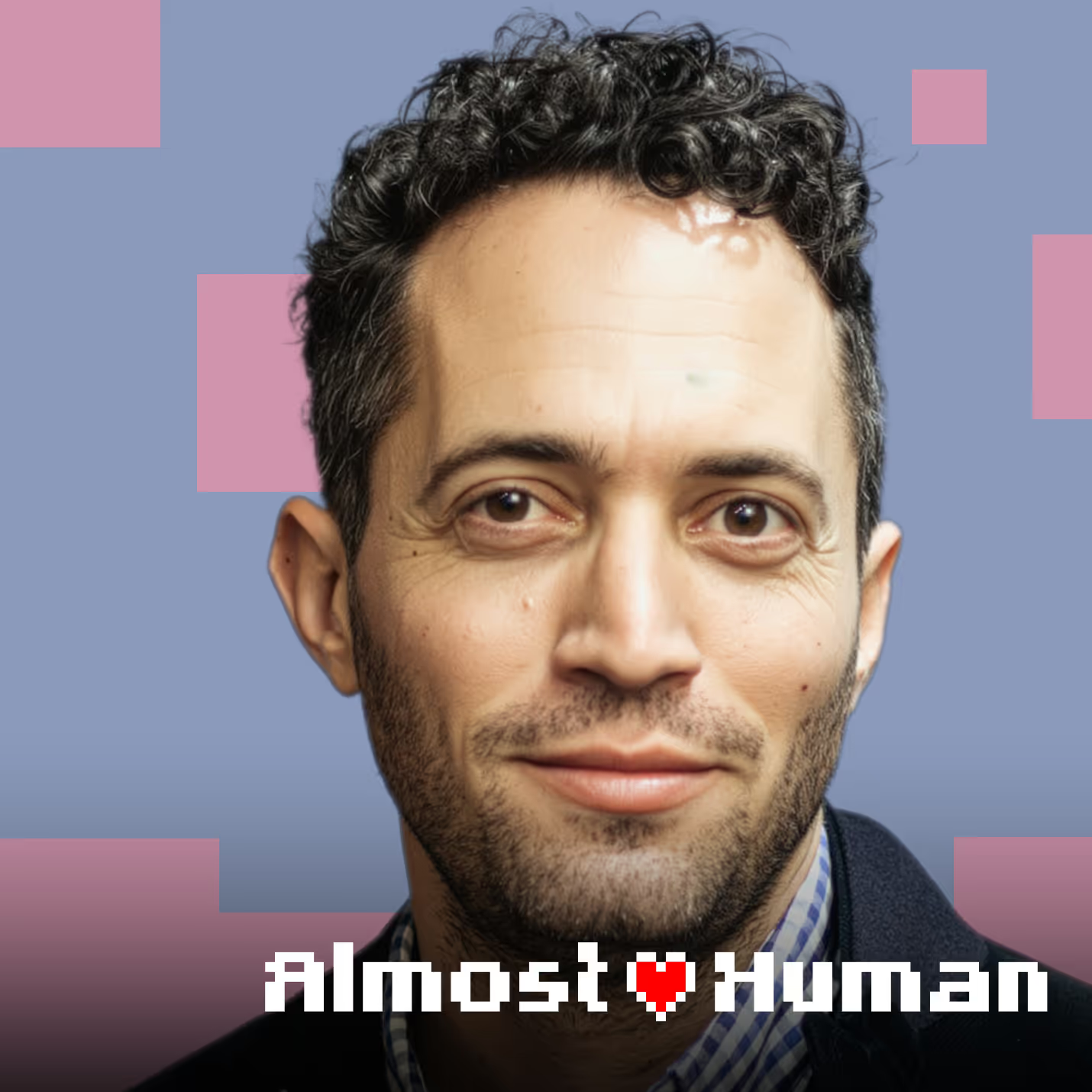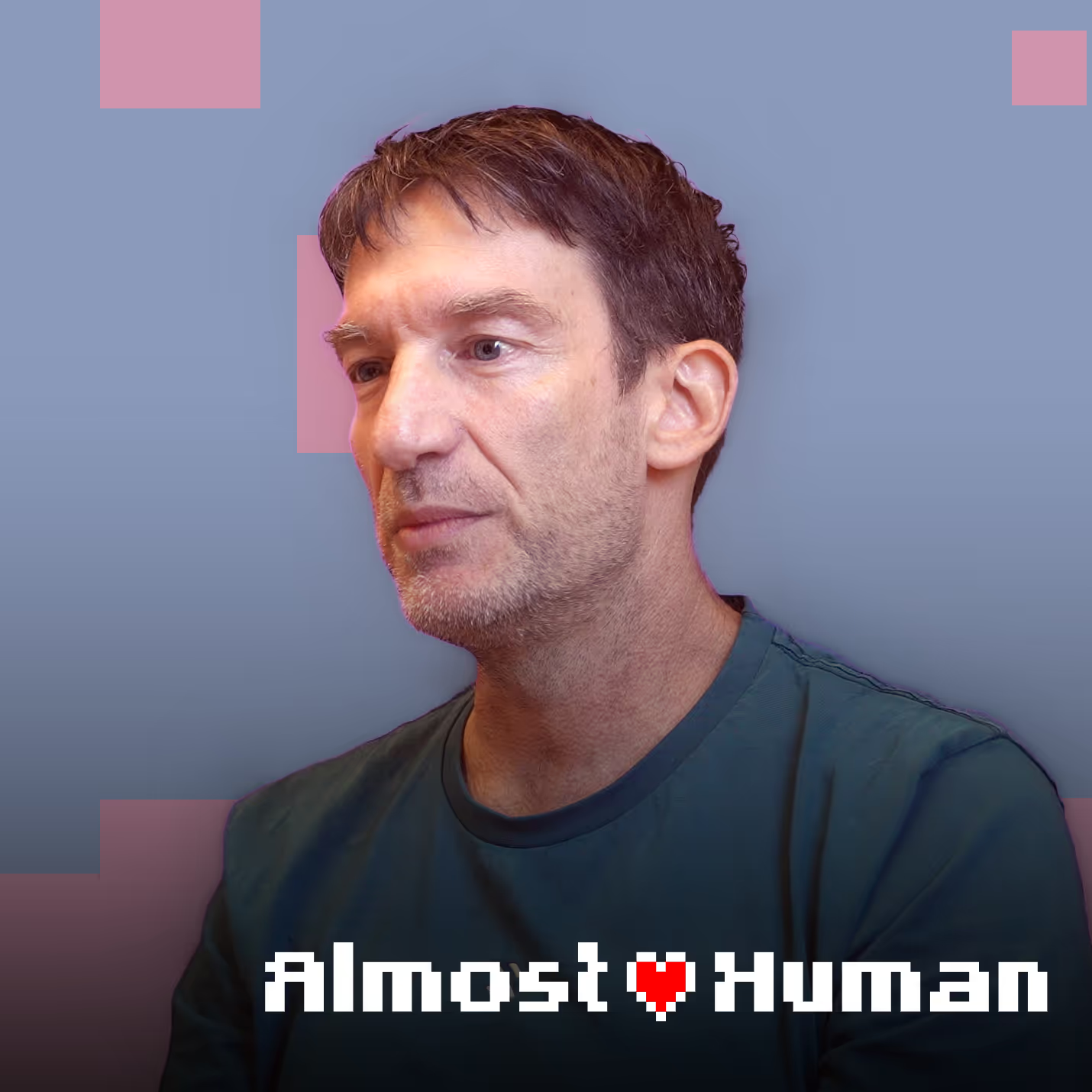Special Episode of Invested with Ami Daniel



How can values create value? On this podcast, Michael Eisenberg talks with business leaders and venture capitalists to explore the values and purpose behind their businesses, the impact technology can have on humanity, and the humanity behind digitization.
Special Episode of Invested with Ami Daniel



How can values create value? On this podcast, Michael Eisenberg talks with business leaders and venture capitalists to explore the values and purpose behind their businesses, the impact technology can have on humanity, and the humanity behind digitization.
Special Episode of Invested with Ami Daniel
Special Episode of Invested with Ami Daniel

Special Episode of Invested with Ami Daniel
Special Episode of Invested with Ami Daniel
- [00:00] Intro
- [01:00] The Morning of October 7th
- [02:46] The Massacre in The South of Israel
- [04:07] We’ve Got to Do Something
- [07:35] Rescuing Survivors of the Massacre
- [13:40] Meeting The Rescuees in Person
- [17:05] Importance of Mental Support
- [17:50] Ami’s Navy Experience
- [22:30] About Windward
- [25:40] The Wartime CEO
- [28:00] Building a Product to Help Rescue Efforts
- [30:10] How “Kvar Baim” Was Created in 48 Hours
- [32:25] The Need for Innovation
- [36:40] Civic Involvement and Resilience
- [40:20] What’s Changed Since the War Started
- [44:20] Pioneering 2.0
- [45:50] The Importance of Family
On this special episode of Invested, Michael hosts Ami Daniel, the CEO and co-founder of Windward.
In his capacity as CEO, Ami has been featured extensively as an expert in shipping and AI at multiple conferences, events, op-eds and interviews including by The Economist, The FT, WSJ, Bloomberg and many others. He was recognised as one of the 40 most promising entrepreneurs in Israel twice by Israel’s leading economical newspapers – Globes and The Marker. Under his leadership Windward has been awarded multiple awards including as a finalist in the Boldness in Business Awards by the FT, Red Herring, The Hottest Startup in Israel by Wired and many others.
Before founding Windward, Ami has been one of Israel’s most impactful youth social entrepreneurs, founding a community center in Haifa when he was 16, as well as another national scale social empowerment program. For these he was given multiple awards including the President’s Award and the Ramon Award (both the most distinguished for youth in Israel).
Ami served as a naval officer (Lieutenant) in the Israeli Navy and he holds an LLB from Tel Aviv University.
You can learn more about “Kvar Baim” (“We’ll Be Right There”) on their website, and find Ami Daniel on LinkedIn
Please rate this episode 5 stars wherever you stream your podcasts!
Michael (00:01.438)
All right, well.
Today we're running a special episode of Invested, in light of the massacre that happened on October 7th in the south of Israel, and the incredible response of Israeli civic society since then. I really want to thank everyone for joining and listening to this episode. And I have with me today Ami Daniel. Ami Daniel is the CEO and founder, co-founder of Windward, a company that Aleph is invested in. And we'll talk more about Windward soon, but we want to start by talking about October 7th, which we’ll come to in a second–Shabbat, or Saturday morning, October 7th. But before we get to that, Ami, tell me, how is your family doing? How is Adi, your wife, and your kids doing?
Ami Daniel (00:49.099)
First of all, thank you for having me, Michael. It's great to be here. I think it's super important to talk about what happened, but also what can we do about it. My wife is okay, my kids are okay. I gotta say, they're a bit afraid now. I think what happened, I think is the actual definition of terror. My kids sometimes wake up at night or walking in the streets and say, “Daddy, can you make sure people don't kidnap us?” So I think it's way beyond just an alarm or two. It's instilling that fear, I think, in kids and citizens, which are afraid of exactly that.
Michael (01:23.126)
Yeah. So October 7th, for those who don't remember, was a Shabbat or a Sabbath morning, Saturday morning, here in Israel. And it was also the holiday of Simchat Torah, which literally means the ‘happiness with the Torah,’ with the Bible. And take us through your morning. Like, you got up at 6:15, it was on that morning?
Ami Daniel (01:47.275)
6:32 I think.
Michael (01:52.583)
6:32 you got up on that morning. And just walk us through what happened.
Ami Daniel (01:55.239)
Yeah, so we wake up from an alarm at 6:32 a.m. We run down to the shelter. We have a shelter.
Michael (01:59.815)
An alarm is a siren, a siren, not an alarm clock, a siren. Yeah.
Ami Daniel
Yeah, sorry. A siren. We wake up from a siren. No alarm clock, actually said that. And we run down to the shelter in our house. We close the door of the shelter. And then we come out 10 minutes afterwards, and my wife tells me, “Ami, this is like the Yom Kippur War.”
Ami Daniel (02:25.627)
Immediately, and I was looking at her and saying, “Why are you saying that? We had sirens before.” She says, “Listen, I can feel it. This is like the Yom Kippur War, okay we need to do something.” I gotta say, it took me 25 minutes to sit on that, because Yom Kippur was 50 years ago - by the way, exactly 50 years that day, I believe, Michae, so I think it's actually quite symbolic but also quite purposeful on their, on their behalf.
25 minutes afterwards, I sit on it, and I said, “Okay listen, we need to do something. What can we do?” And then it's 7.30 a.m. on Shabbat. Obviously everybody should be asleep, right? It's Simchat Torah. And I pick up my phone, which is, by the way, usually closed, and it's usually, I turn it off and put it in a closet. It's my digital Shabbat. Because it helps me clear my mind. Usually. Not at war. And then.
And I open the news and I see the videos of the trucks, Toyota trucks in Sderot, which is a city down south, with a lot of terrorists on them and RPGs. And I grabbed my head and I said, “Listen, this looks like a movie,” right? Toyotas with terrorists in Sderot. I think it's, I've never seen anything like it.
Michael (03:42.594)
It's important to point out that you're actually not in the south of Israel. You're probably 20 kilometers, 15 kilometers northeast of Tel Aviv.
Ami Daniel (03:51.127)
Yeah, like I live northeast of Tel Aviv. I just sit in the TV, I see it in the computer. I go up to my study where I am right now and I say, “Listen, we gotta do something.” And then I just start calling people, basically. I call you Michael, but it's Shabbat, so it took me a few hours to get ahold of you. I call some other people, and my brother-in-law is very active in Brothers and Sisters in Arms, which is a new civic movement which was built in the last 10 months.
So I called him up and said, “Listen, did you see what happened down south? We need, we got to help them.” His name is Tamir. And he says, “Listen, let me check that and come back to you.” He's checking with them. They didn't really know what to do. He calls me back, says, “Listen, I can't do anything to help.” So I said, I say, “Okay, so I'll do it alone. No problem.” And I started messaging in a lot of WhatsApp groups. ‘Does anybody need help?’ And I did this instinctively without any plan, obviously.
And then people started coming back to me. And the first guy actually is Erez Shachar, which you know very well.
Michael (04:56.575)
Yup, he’s a venture capitalist.
Ami Daniel
He's a venture capitalist from Qumra Capital, who we, together, went to meet some people, some internal Israeli things in the last 10 months. And he calls me back and says, “Ami, my lawyer is right now in a car, with a gun, going down south, trying to rescue his daughter.”
Ami Daniel (05:17.195)
And I was like, “Excuse me, can you please repeat that for me?” He says, “Yes, my lawyer is in the car with a gun, trying to rescue his daughter, but can you call him and help?” I called this guy. I've never met him. I don't know who the guy is. I said, “Listen, hey, what's your name?” He says, “Yaron,” I say “Can I help?” He says, “Yes, my daughter was in the party. It was a big party called Nova -”
Michael (05:37.794)
The Nova Peace Festival.
Ami Daniel (05:46.815)
The peace festival. It's about 1500 or 1300 young people celebrating peace. A few kilometers from the Gaza Strip, I think four or five kilometers. And she says, “Listen, she got away from that. They were massacred there. And she's hiding right now in some open area. I'll give you her number.” And then I WhatsApp her. And I said, “Yuli, your dad told me to help. How can I help?” And she writes me back, like in a second. “Listen, my boyfriend and his friend, they tried to save us and they got shot. We're surrounded with bodies. We're just outside in this open area, and we need help, can you help me? Here's my location.” She sends me her WhatsApp location.
And my instinct to respond to her was, “I'm on it, don't worry, we'll fix it.” Why did I say that? I have no idea, because I had no backing to say that, obviously. But I just say, “On it,” you know, “I'll get you out of there.” I turn to my wife and say, “Listen, what do you think we should do?” She says, “Listen, do you remember the guy who, when we were in London a couple of years ago, he studied with us? He's a general in the army. How about you call him?” Okay. I was his mentor, Michael. I think you put me together with him to mentor him in some internal course for the army a few months ago. So I know him, I know his wife, I know his son, right? I call him and I say “Moran, listen, I have these people, they're just outside, we need to help them. What can I do?” He says, listen, I'm on vacation in London, I can't help. But here's the phone number of the Operations Officer down south. Call him, tell him I told you, I told him to help you.” I said, “Okay, please message him.”
I called the guy and I said, “Listen, you don't know me, my name is Ami, but I have people right now locked in with terrorists around them. Give me somebody to work with.” And then from that sentence onwards, for the next whatever, three days or so, but specifically that Saturday, I made maybe 50 calls, maybe 100 calls to this guy.
And I got, and this guy gives me, now, a guy who is around the lady’s, the young lady’s location to get her out. So in one hand, I’m on WhatsApp with her, and she's telling me - it was five or six hours with her, right, it's not a minute, this starts at eight AM, it finishes at one, two PM - and she says, “Listen, they're outside, there are terrorists outside, they're trying to kill us, they're shooting people,” and so forth. And he got me together with these forces on the ground and we managed to get her out.
Ami Daniel (08:12.207)
And then we did it again. And again. And then in Be’eri, and then - Be’eri was a big city down south, I think the biggest one, right? So about 1,400 residents, really close to the fence. And Be’eri was really a massacre over there. So suddenly these people started phoning to me. And my brother-in-law calls me and says, “Listen, you know what? I'll help. I don't care.” And he starts sending these messages in Brothers and Sisters in Arms WhatsApp groups, which is, again, hundreds of thousands of people around the country.
And I do the same, in the Entrepreneurs WhatsApp group, in the whatever, Tech Leaders for Democracy WhatsApp group. And people start spreading the word. So people started coming back to him, and coming back to me, and coming back to some friends, and coming back to my wife, and then suddenly, I'm overflowing with hundreds of people right now under fire. And they're telling me, “Listen, here's my location. Nobody's helping me. Can you please get the army here?”
Michael (09:10.578)
All on WhatsApp, all being coordinated with both the people who are under attack and the army on WhatsApp.
Ami Daniel (09:15.911)
It's all on WhatsApp, and I think Saturday I focused on Be’eri, because this is, I think, one of the hardest areas and I'm just one person. My wife and kids are at home, right? So I focus on Be’eri, and I get to the first forces that break into Be’eri, and I end up with a guy, with the commander who's called Daniel Luria, who's right now coming from the fence around. So the terrorists were at the gate, the barbarians were at the gate, actually, maybe, shooting everybody coming in. So he goes around the fence, and this guy just, you know, they just gave me his number. And I said, “Listen, I got your number. Can you go down south to Be’eri?” And he says, “I'm on my way. Give me 15 minutes.” And nobody else is telling him what to do. Right? He's like a colonel in the army. He has 25 or 30 people with him.
Michael (10:11.29)
We should also say at this point that some week plus later, you discovered that Luria, this guy, actually got in his car from the northern border of Israel, from Betzet, and went south to save - loaded, put on his uniform, put his gun on, and went all the way south to do that. And then two and a half or three hours later, which first of all tells you how small a country Israel is, is now at the fence in the southwest of Israel in Be’eri, talking to you on the phone. And you're kind of...
Ami Daniel (10:22.09)
Yes.
Michael (10:39.426)
directing him to get people. But you only discovered this, that he came from the north, like a week plus later.
Ami Daniel (10:44.567)
I didn't know. He just sends me a WhatsApp message. ‘I'm on my way, 15 minutes.’ And then when he comes in, I started working with him. Now, it's important to understand that these cities don’t south don't have street names. So as opposed to New York City, where it's just like, you know, “I'm on sixth and 25th,” or whatever, you can't really... Like, if you don't live there, there is no name. And this is quite difficult to...
Michael (11:07.094)
Right. All towns and villages with little roads.
Ami Daniel (11:10.203)
Yeah, it's like little roads and the houses, people know the houses according to the family name and the number. But if you go to Google Maps, it doesn't appear there. So I think it's a big issue, because I end up working with three or four different ground forces in Be’eri - every one of them in a different area of Be’eri - for like 14 or 15 hours, and they don't know the place. And they have no maps. And really they don't know, really, that each other are working there. And I'm getting these locations from people. And I think at that time, I think what's crazy is there are terrorists in the houses. It's not that this is done and the army is like - there's three to five terrorists in every house. Oftentimes, and I've spoken to many, many families that I’ve helped, they're in their shelter locked. The dad is pushing the door handle so people don't open it.
The terrorists are setting the house on fire because they can't open it, because the dad is like this for 14 hours, and the door is becoming hot. And the terrorists are either putting it on fire or not putting it on fire, and waiting outside the door, ambushing the forces coming in. So at that time, what I end up telling the forces is not just, “There are people in this house,” - because they don't know where the people are, because many of them were kidnapped - but also where the terrorists are. To the extent that right now, “Listen,” they send me WhatsApp pictures from the ground, and send me a live location, and I send them back maps with drawings that I do on my iPhone of where the terrorists are.
And I try to just have them understand in which windows are the terrorists, and where did they miss them. And a few families were - we had one family, the Mor family, where the dad has ALS and he just, he's in a wheelchair. So we had to tell the two kids to jump through the bathroom window, while the forces go in and blow up the door. And we knew there were two terrorists hiding from them, one in the stairs and one in the second floor. And it's very surreal, because I'm just a CEO of a tech company, right? I don't usually work with ground forces to tell them where the terrorists are. So that was Saturday, and I think Saturday finished, I think, at 2.30 a.m., there were dozens of families like that. And it really...
Michael (13:29.29)
Yeah, you know, I just….Sorry, go ahead.
Ami Daniel (13:33.157)
I thought it was over Saturday evening, but apparently it wasn't.
Michael (13:37.066)
Yeah. So just to kind of cover off on something that's incredible - so you and I were at a bris, a circumcision, a brit-milah, for the son of someone who used to work for us at, at Aleph. I actually officiated at their wedding as you know, and their family is also from Be’eri. And we were both - so this child was born in the same hospital that the grandmother who was wounded in the evacuation of the people from Be’eri was, where she was being treated. The baby was born a few floors underneath her. And then the grandmother passed away just hours before the circumcision and the Brit Mila. And we were both there at this bris, at this circumcision.
And I got to see actually, her family here, her husband's family from Be’eri, come over to you. They thought that you were in the South, in Be’eri, when you were directing them out of the room. By the way, this is, you know, one degree of separation in Israel where, you know, Avigail, who is the mother of the child - you and I were on the phone, and these people who you helped save now turn up at the bris on the day that the grandmother unfortunately perishes from this awful massacre.
Ami Daniel (15:00.671)
Yes.
Michael (15:06.526)
And they didn't realize that you were in the center of the country doing this by WhatsApp. They thought you were directing ground forces in Be’eri. What did you feel when you, kind of, met these people?
Ami Daniel (15:15.987)
Yeah, first of all, they're the first people I actually meet. I got many phone calls afterwards, and pictures, and stuff like that, but they're the first people I actually meet. So Avigail's husband actually reached out to me sometime on Saturday I think. He says - or I reached out to him, I think, I got his phone number from somebody - he says, “I know your family is down in Be’eri, how can I help?” And he had actually all of his family down in Be’eri,, I think, about 10 people. And they worked with three different forces to get him out, and actually her husband was very resourceful because, it's because of them.
Michael (15:37.623)
Yeah.
Ami Daniel (15:44.819)
He was really, he sent me maps, and he worked with me for like seven, eight hours. So kudos to him because that's really, I think - I don't think people thought of it as the meaning of family, but that's some of the meaning of family. You don't give up on your family, right? So what I felt is - they hugged, the wife hugged me and she said, “Listen, is it because of you that we're alive? You saved us. They would not have found us.” And I think, you know, I'm not sure I thought of being in that situation, but I think it makes you just grateful for the opportunity you had to help. Because we talk about investing with an impact, and improving the world and technology, but we maybe forgot the Maslow pyramid, right? First thing: stay alive. Then you can eat, then you can have WiFi and all that good stuff, right, and what we can't do without. But I think that's really out of this world. We spent a lot of time together, and...
Michael (16:30.527)
Yeah.
Ami Daniel (16:42.407)
and I think it was really amazing to see people that you managed to get out of there. And by the way, many of them wrote me, like, “Thank you Soldier Ami for getting me out.” Why they called me ‘Soldier Ami’, I don’t - because they told me, “You spoke to us like the commander of Delta Force. You told us what to do.” And by the way, I think, equally, the mental support is equally important. I had a family in Kfar Aza with four kids, and then the wife, it was really tough. Because she's with four kids, for 30 hours. 30 hours in a closed, like, small room. They're out of air. They don't have water, they don't have food. 30 hours, four young kids. She's telling me, “Ami, I need to go out. The kids are thirsty, you know? They need food.” And I tell her, don't go out, okay? I'm with you.” She tells me, “We're all gonna die.” I told her, “Listen, you can tell me that. Don't tell the kids that, okay? You have me. We'll be together, and we'll figure it out together.”
And it's always the darkest before sunrise. So I think equally is just getting the army there and so forth, but equally is just being with these people that they don't break. I think it's super important.
Michael (17:50.858)
Yeah. And what I want to do here today is also, then, take a step back.
Michael (18:03.658)
You were in the Israeli Navy, I don't know how many years ago it is now, 18, 20 years ago, and your ship was hit by Hezbollah, another Iranian proxy. You want to tell us about that?
Ami Daniel (18:18.039)
Yeah, July 14th, 2006, 8.42 p.m. As you can notice, there are a few dates I remember very well. Dates and times. I'm a Naval Officer, a lieutenant, just off Lebanon, on a corvette called ‘Ines Hanit,’ which means ‘spear’ in Hebrew. We're doing a naval blockade, and the ship gets hit by a Hezbollah missile, C802. Actually, it's a very special story because it's the only time - it was Friday evening - it was the only time we did the Kabbalat Shabbat at sea, like a big one. So, clearly they planned to fire the missile Friday evening, but we were very lucky, because of the Kabbalat Shabbat, dinner was postponed, obviously.
So, that means that when the missile hit, there were only three or four people at the back of the vessel. Most of us were in the, it's called the ‘officer's mess,’ doing the blessing on the challah bread for Shabbat.
Michael (19:18.045)
That’s the blessing on the bread for Shabbat.
Ami Daniel (19:19.847)
Yeah, and that saved a lot of people. And then the missile hit. We were obviously surprised. It's a very big missile, 8.5 meters, 120 kilograms of explosives. Four people died. 12 were wounded. It took eight and a half hours to take out the fire. We were towed away from Lebanon. I was a tactical officer on board, so I was in the Command Information Center all along, talking to everybody and doing whatever I need to do.
But to some extent, actually, Saturday, October 7th, I responded that way because I responded instinctively because of that event. Because I felt under fire on Saturday, October 7th. Again. So I responded exactly like I was trained, which is, ‘go manage, just go figure it out. Get everybody together,’ because that wasn't what I used to do in the Navy. And I think it really changed me, that experience, obviously.
Michael (20:15.506)
Yeah, I want to, by the way, there's a famous biblical expression where the vintner of Pharaoh says, “My sin I recall today.” So Ami, who's been to my house with his wife and kids and other people for Shabbat - so the siren went off in Jerusalem two hours after it went off in Tel Aviv. The first missiles were fired by Hamas to Jerusalem two hours later. So only at like 8:20, 8:30 in the morning did we know something was up. And I have a son who's in the army, and his phone started ringing, “Get ready to come.” And my second, another son, who's in reserve duty, turned on his phone - because we don't keep our phones on Shabbat - and they said, “You gotta come to the army.” And after another 10 minutes I said, “I better turn on my phone. Something's going on.” I turned it on and there’s a message from Ami that says, “Call me as soon as you can.” And I hesitated.
I'm saying, “It’s Shabbat. I never talk on the phone. I never turn on my phone. Why is Ami looking for me? He's one of my CEOs, like, what's going on?” And then I said ‘No, he knows that I wouldn't do that.’ So I pick up the phone and call you. I said, “What's up?” You said, “What took you so long? I wouldn't call you for a Shabbat. I know you keep Shabbat. There's an emergency. We got to go find people down south who can rescue people.” And we start connecting, and I'll never forgive myself for that hesitation. And so I want to thank you for having the right instincts and I've learned from it. That 10 or 15 minute hesitation until I actually called you, staring at my phone, like what the hell is going on, I won't forgive myself for, and, uh, so thank you for being…
Ami Daniel (21:52.272)
It could have been 10 hours, you know, 10-15 minutes is not that bad.
Michael (21:55.382)
Yeah, it could have been 10 hours. And then we started getting a hold - and I think what's interesting about that part of the story is, you called the Brothers and Sisters in Arms, and I called my buddy Erez Eshel and Yoel Zilberman, who both went down there immediately as soon as they heard, on Shabbat morning, one from the Golan Heights and the other one from Kfar Adumim, and a bunch of other people - we started connecting people - Erez grabbed an ambulance and took a pregnant woman that you found - which was incredible. And just, the human stories - that baby was born, by the way, a couple of days later - the human stories are just incredible. And I think your instincts proved to be beyond critical at this point in time.
But I want to transition and let you tell me about your day job, because I think it's important for the next phase of the story. What is your day job as CEO of Windward? Why did you start the company? And what do you do? And then I want to come back to, kind of, how all of that comes together on the events of October 7th.
Ami Daniel (23:05.323)
Sure. So Windward is a shipping AI company. What we do is, we observe and track the world's ships, and cargos, and ports, and companies, and help figure out risk in world trade. We work with about 200 customers, from ExxonMobil and BP and Shell, to Glencore. So very big traders in oil companies. We have about two thirds of our revenue from governments and regulators.
So the US government is our biggest customer worldwide, more than 15 agencies across DHS and DoD and everything you can think of. And same in Europe, obviously in Israel and other places. And we also work with supply chain companies, the biggest freight forwarders in the world, to then track and predict supply chain structures.
So it's a software company, traded in the London Stock Exchange, about 170 employees, growing very nicely. And I think my day job, what I do is, I work with our customers to understand, look, two years, three years, four years in the future with them, and then work back from there to learn what do they need to get more profitable or safe or secure, and co-build these technologies with them on a day-by-day basis. And actually, during this war in the last few weeks, we've rolled out a couple of new products that I think will make a big difference because of the situation.
That's it.
Michael (24:33.45)
A couple of new products for maritime, just to be very clear about this, that because of the war situation and the kind of pressure cooker that this puts you under and the way it's affecting global supply chains and shipping companies, new product ideas around AI and other things that you've been working on, have now kind of, okay, there's a real customer need here and we can roll this out. You've already rolled out and sold some of that in a short period of time.
Ami Daniel (24:36.071)
Yeah. Yeah, listen, I think basically, when you roll out a new product, everybody knows the hardest thing is what's called creating a product-market fit. So this is basically a startup under fire, right? In such a pressure cooker right now, it is much easier to get a ton of feedback and fast. Because there's lives on the line, it's not just dollars on the line. And when there's lives on the line, everybody operates in a different level of urgency. So I think you can sit back and say, “I'm shocked, what's happening in the world,” you know. “Oh my God, it's very tough.”
But as a leader of the company, I think, A. You need to make sure your people hold up. And I think it's not easy, because it's very emotional. It's very deep to many people. At the same time, we lean into our business and we make this a business opportunity, I think. Never miss out on a good crisis.
Michael (25:47.274)
Yeah, this is kind of the famous Ben Horowitz, ‘Wartime CEO’. I think it's fair to say you're a Wartime CEO right now. What's some of the hardest things that you've had to deal with at the company level as a Wartime CEO now?
Ami Daniel (26:03.011)
I think there's a lot of uncertainty, because the drafting of the employees in the company isn't -
Michael
Reserve duty.
Yeah, reserve drafting, isn't in one day, and their spouses - so the people you have in your manpower for the next six months is a moving target. You know it's not that, you know, listen, I pay, I spend X, I have Y people, here's the production I can get, what do I do with it - it's constantly moving about. So I think it's formalizing a more fluid way of management with your management team that understands what's important, focusing on the most, and the top priority right now, and doing that first. And I think, many years ago, I met Marc Benioff, chairman and CEO of Salesforce, and he did an exercise with me. He says, “What's your top priority? What's the top 10 priorities? What's the top 5? What's the top 3? What's top 2? What's the top priority?” It's actually hard to do that. So getting inspired by that exercise with Mark.
That's exactly what we're doing. And we're doing this, kind of, every two or three days. Because on the one hand, your manpower changes. On the other hand, your customer needs are changing because there are new needs around the world, the war. And at the same time, there might be technological breakthroughs you can do to bridge the two apart. So I think it's not easy having that in your head, but actually having people focused on execution because the world, the non-Israeli world, doesn't really care, in the businesses of the way. We need to keep delivering the results on a quarter by quarter basis. There are no excuses here.
Michael (27:35.506)
One of the things I keep hearing from our CEOs, which I just find inspiring, is, “This is Israel. We deliver.” And everybody is absolutely committed, war reservists or whatnot, to deliver for customers. And I think that's a key part of the country's resilience, the entrepreneurial resilience that's here. And it's become a rallying cry. We're Israel, we're Israelis, we deliver, and we're gonna keep delivering. And to the point you made, there's more innovation coming out of this than I think people understand. At your company you mentioned it, but let's go back also to the days after October 7th.
So you and I are talking, and I think you said, “We can't keep doing this on WhatsApp. This needs to be productized. This needs to become something.” We talked about it and said, “Okay, let's gather up a bunch of great Israeli engineers and product people and get at it.” And so, why don't you tell the story of what happened right afterwards?
Ami Daniel (28:37.151)
Sure, first of all, I thought it's only Saturday. And then Sunday morning I wake up, I see it's not ending, and there's still more people. My wife tells me, “What are you going to do? I said, “We gotta help them.” So I call up my VPs - my VP product, Amir, and my CFO, Ofer, and my VP business services, Ariel - I tell them, can you just show up? They just show up, like 15 minutes afterwards. And then I write in an entrepreneur group, I said, “Can people come help?” And suddenly by 10 a.m., there are 15 or 20 people in our house. And I end up like, people reach out to me and then I give them, “you talk to this part of the army, you talk to that.” And then we understand, my wife tells me, I mean, “This is too much. We can't keep on doing this on WhatsApp. Let's build a product.” I said, “Well, good idea, sorry.” I was like heads down. I called Eden, your partner in ALeph, and I said, “Can you come and help?” 15 minutes afterwards, he's in the doorstep. And we start working with Eden and figure out how we can make this a product. Now I think, you mentioned no degrees of separation - I actually think the layer of founders, CEOs, COOs in Israel of growth companies is extremely tight. I can mention Nir Zohar from Wix who is amazing - obviously you invested in the early days of Wix - I think you introduced me to Nir, and Micha Kaufman, co-founder and CEO of Fiverr is amazing. Eynat Gez from Papaya, and Guy Bloch from Bringg, like I mentioned, and Gigi Levy who is a big investor in this country. But the investors and top founder CEOs are very tight. So I reach out to them and say, “Listen, guys, we need help. Can you help?” And suddenly, I think we have a team of, by Monday morning, 15 or 20 people productizing an idea that says, if Israel is attacked and the fight is on our ground, not on the enemy's ground, and people message you on WhatsApp, how do you collapse the time at scale to help them? And do that in hundreds or thousands of cases?
So we think of a concept called ‘Kvar Baim’, which in Hebrew is, ‘we'll be right there.’ It's, by the way, intentionally in Hebrew, so everybody feels comfortable in this country, because Hebrew is, you know, obviously our mother-tongue. And we start working on it. And so by Monday evening, there are about 20 people working on this product. By Tuesday morning, it's on the website of the biggest news website called ynet.co.il in Israel, for people to reach out and get help.
And I think by now, it is a fully-fledged product that people can reach out and get help, whether it's for evacuation, or whether it's for more things under fire. And it's fully integrated with monday.com and other products, API products, but it's a fully integrated product for rescuing people under fire.
Michael (31:34.734)
And not just that, also to provide intelligence and location-based intelligence information to the forces. And it's been integrated also into institutional civic society, without saying more than that, at all levels. And so, this product that came about in 48 hours, which Eden, my partner, now thinks it’s actually, maybe a company that can be built around it for civic response globally, is - what's that?
Ami Daniel (32:00.767)
Yeah. Thank you.
Yeah, I agree with him. I called him up a few days ago to tell him that. Yeah, this is a global need. And it's again, the hardest thing is to get the product-market fit.
Michael (32:12.126)
Yeah, I think it's also fair to say that a bunch of the companies that worked on this, whether it was Bringg or Monday, et cetera, found new products and new product market fits, and new markets coming out of all this innovation. And so like, let's, let's roll this movie forward a year or two or three now. Where are some of the areas of innovation that you think will have come out of this awful, atrocious massacre, and the crucible that it created for Israeli tech?
Ami Daniel (32:48.875)
First of all, I think it's global tech, not just Israeli tech. I think the need, basically you see a rallying of the West, I would say, around Israel. You could see the Prime Minister of the UK and Germany and France, and President Biden here. So I think it's important to say, I don't think by now it's an Israeli thing. I think it's a global thing. I think it's important. There was Israeli tech developed based on this, but to a global customer base. I think it's a very important thing because you need a market, right? I think there are the obvious suspects - video analytics, to me, is an obvious suspect. Suddenly I think it's the first case ever in history that I know of that you're just open source, like that amount of open-source videos and just identifying who's been kidnapped, you know, who's been murdered. It's just, just hard. And these, the videos are from phones and you know, whatnot. So I think that's one.
I think civic response is another one. We've been working with one of the other Aleph companies and their logistics platform, so I think there are a lot of civic-response use cases for them. Which actually, by the way, they also tweaked the product in the last three weeks. Half of their company’s working on building that product and tweaking it. So I think there’s clearly civic response. I think there are different elements of intelligence, I heard, that they are building. I'm sure there's cyber intelligence, and I think there's location-based intelligence.
Because I think as a country, we were completely caught by surprise. And I think the country was actually in a bit of a shock for the first two or three days. But since the last weeks, I think people have been rallying up, and really every bit of technology and talent is trying to be directed at that.
Michael (34:25.782)
Yeah. I think by the way, some investors in the US, guys like Matt Ocko and Josh Wolfe, who have been investing in - and Trae Stephens at Founders Fund - who have been investing in defense tech over the last years, have probably, some of their companies have gotten tested in the crucible here as well. And that probably moves a bunch of those companies forward as well. Israel became, on some level, a beta sight, or a real use case for some of those technologies.
Ami Daniel (35:03.931)
All of them, if I may, I think these guys are all great guys. Most of the investment in defense tech and stuff like that went to US companies, because US companies, the assumption is that their market is the biggest, so they get to the product-market fit the fastest. So actually, I think this is an interesting turning point, actually, to bring that attention to Israeli companies who are innovating under fire for the Western world. And I would not underestimate that, because one of the things that we haven't seen in Israel is the big defense tech investment in companies like - we’ve seen Saildrone, obviously Palantir, is of course, Anduril. There are a bunch more.
Michael (35:40.942)
So I think, there's a fascinating question in my mind here, which is, if you are an Israeli founder post-October 7th, post the day of the Simchat Torah massacre, are you gonna go build something different that maybe you wouldn’t have built had you started your company a year ago?
Ami Daniel (36:07.947)
It's a good question. I think the answer is yes.
Michael (36:11.892)
Yeah, I think so too.
Ami Daniel (36:13.519)
I think the answer is yes, and I think maybe I would also build it differently... I think if you take a step back, I think we in Israel, we have a responsibility to make the world not give up on us from a business perspective. Because equally people can say, “You know, there's a lot of investment opportunities. This place has a lot of uncertainty. There's war. There's political unrest, you know, we don't have to deal with these guys. Let's wait for a year or two for it to settle down.”
So I think it's really on us to go back to, we deliver, and to show resilience, and our capability to build companies at a global scale, and make sure that on the business level, this has made us stronger and better.
Michael (36:57.33)
Yeah, I think you hit the key word, which is resilience. Civic society has shown incredible resilience here. The military has shown resilience here, after the initial failure. And I think there is a esprit de corps, which has turned up in a broad swath of Israeli society that wants to be resilient technologically, business-wise, and embrace life. And I think the other thing, I think this is part of what you're saying is, the technologies we build, in addition, to being incredible businesses should embrace life. And should embrace making humanity a better place. It's not just ‘not give up on us.’ This is where you're going to want to be if you want to find resilient founders and find people who want to build technologies that build big businesses and embrace life.
Ami Daniel (37:47.591)
Yeah. And if you, by the way, if you take Israel out of the equation for a second and look at the last three years. We had two years of COVID. Then we had, it's my - this is my CEO day job, right - two years of COVID. And then you had the war in Ukraine. You have interest rates go up and capital dry up. So there's a lot of things that require, actually, resilience and resourcefulness and the ability to gather a team and, you know, navigate on the go. And actually, if you look at our business - and she's been growing very nicely - we had a long-term thesis, and I'd like to quote Peter Thiel here that says, "To build a big company, you need to be right for a long time on something everybody else thinks you're wrong about."
And I think as a founder, CEO, to run a business, like, in these times, it's hard and you need to be resourceful. I know a lot of companies in the freight tech industry, supply chain industry, I can mention Convoy was valued at $3.8 billion a year and a half ago. They went bankrupt a couple of weeks ago. There's a company called SLE, which raised $80 million, I think, from Goldman Sachs, $240 million, filed for Chapter 7 and so on.
I can give you a lot of other examples. And my view is I'm sure they're all amazing businesses that had great technology and a great market, but then things changed. There was a recession, then the demand went down, the interest rates went up, and probably, I think in hindsight, somebody didn't respond well enough to keep them afloat and successful. So I think if you choose founders, that's what you should think about.
Michael (39:27.822)
You know, in the 1900s, a century ago, when historians talked about the 1920s, they called them the ‘Roaring 20s.’ I have been floating in my head and tell other people the idea that when we look back on the 20s of the 21st century, it's going to be called the ‘Chaotic 20s.’ Chaos reigns, and in chaos, you need resilient people. And we're not out of the chaos yet, obviously, you know, the war between Russia and Ukraine is still ongoing, who knows what happens in China and Taiwan. The maps are being redrawn. I think most people thought that in the 21st Century, maps wouldn't be redrawn. I've never thought that, for what it's worth, and even written about that in my books. But the world is changing in front of our eyes, and many of the isms of the last 20 or 30 years have peaked and are now behind us. And so I guess just in finishing, the one thing I wanna ask you is - you know, just like you said, you came out somewhat different from the event of your missile hitting your ship. There's no way to come out of this event, if you're a bystander, and certainly not after what you went through. There's no way to come out of it the same person. So if you reflected on it for a second - and obviously your answer may be different in a year - so we won't hold you to it (or two), what has changed about you since three weeks ago or four weeks ago?
Ami Daniel (40:56.489)
Um, well it's a good question. First of all, I think…I'm not sure I'll be calm anymore. Because I think, it kind of undermines your basic security about the world. As a dad, as a head of a family, you need to be...I don't think I ever expected to be on it at this level. And by the way, you could see a lot of anti-Semitism around the world right now. If you were on a plane landing in Dagestan, wherever that was in Russia, and from Israel, I'm not sure it's a good outcome for you right now.
It didn't feel well, for sure.
Michael (41:32.362)
Or campuses in America.
Ami Daniel (41:58.691)
Or campuses. I think Cornell University, I saw them telling their Jewish students, “Please don't go to the place where you can get kosher food,” which I think is crazy to say and do. And I've seen Stanford University and Cambridge University and Oxford University's professors write not very nice things, I think. So I think, first of all, I thought that part of the world was done, I have to say. I'm not sure it's done. So I think that's one thing.
I think the second thing is - and you know, I might go write an article about that - I thought about the public sector as being separate. Although I have public sector customers, I thought of them as ‘customers’. And I think we need to think about a new model for civic involvement.
I'm not sure we can stay outside and say anymore, “Well, we're running a business, good luck with that. We'll just pay our taxes and move on”. I'm not sure that works anymore. Because the other side, in this case Hamas, but it could equally be Hezbollah - they work asymmetry, in the asymmetrical warfare. So, and the problem with these big civic systems is they're very slow, because they're very big. They need bureaucracy.
So perhaps the answer that we need to get to as a society is, how do we combine the best of both worlds? The width and depth of execution of a big system with the agility of people like us who can drop everything and think of stuff. Maybe last but not least, actually in this event in the last three weeks, I ended up, you know, the people who were with us - and it shows the importance of the bonds - were obviously my wife and kids did this with me, my brother-in-law, ex-employees of our company - a lady called Yonit Hoffman - just saw me do that and, she used to be an employee data scientist, just picked up eight ex-employees of Windward, threw them on the problem, created a forum, and created hundreds of people to come to her. So I think it shows you the bond between people doesn't start and stop at, if you work for me, I work for you. But it's this organic bond we build together to figure things out.
I think it's a more human view of the lack of communities that we now have, because these people are lonely. So maybe we shouldn't be lonely, because we build these virtual communities with us that at a time of need, they come together. I don't know if that makes sense.
Michael (44:14.634)
Yeah, I actually think that it's the physical bond, that you know somebody, you really know them, not just online, that has enabled a lot of the coming together and resilience to solve this problem and the mutual support. And I agree by the way with everything that you said. Ami was referencing an article he and I wrote for one of the Hebrew language papers here, entitled ‘Pioneering 2.0,’ which basically says that the operating system of civic society is, you know, AI, iPhone, Android, whereas the operating system of public service is, at best, Windows 95 and maybe the Pony Express today. And that needs to be solved. And we need to upgrade it and that requires more civic responsibility.
I'll tell you an interesting story I heard last night. I was in the Finance Ministry very late last night. The first responders to the South who took care of the gruesome, gruesome sites of the people who had been massacred there is an organization called Zaka, which is a civic organization. And these, you know, almost a hundred people who picked up beheaded babies and other things need some mental health treatment, obviously. And the Finance Ministry and minister wanted to deliver them five million shekels for treatments like this. Three weeks later, after he issued the order, it still wasn't done, because it was winding its way through the bureaucracy. And that's just not okay, not during wartime or anything. Kudos to the heads of the Finance Ministry that were trying to do that. Shame on us as civilians that we haven't updated the operating system.
I want to close with, actually, something deeply personal. So number one, some of the unsung heroes of what's going on here are grandparents right now who have filled in with kids, as many husbands and some wives have gone off to reserve duty. Throughout this discussion, you've mentioned your wife, Adi, who is a leader in her own right. And, you know, said right at the beginning, had the instincts, said this is the Yom Kippur War, and kind of kept pushing you to go, and you were in this, kind of, thing together - she's calling, you're calling and everybody's calling her, you know, doing the work and helping you pull the whole thing together. Tell me, how you think about - there was always a joke, “behind every successful guy, there's a surprised mother-in-law and a very smart wife.” I feel like through these last three weeks - I speak for myself -the partnership with my wife has become ever-stronger. Talk to me about the importance of Adi, both in the company and in the last few weeks.
Ami Daniel (47:22.163)
Oh, okay.
Michael (47:24.95)
If you feel uncomfortable, you don't have to answer it.
Ami Daniel (47:22.163)
No no, I feel very comfortable. I think it's the better of my life. I think in my view...we're building everything together. I think building a family is a long-term partnership. Building a business is a long-term partnership. Also, everything we built here in the house was part of that partnership. When people walked in, I was on the phone with the army, and they said, “Hey, what's up?” And I said, “She runs everything here.” So she basically ran everything here. I was just on the phone with the army. Starting Sunday morning. And I think you have to have a level of trust between you and unspoken understanding of what's important, and the ability to believe in each other, and follow each other and support each other. But also, I would even say in this case, walk in that journey together. Because usually people talk about spouses in terms of supporting. I think that actually does not do justice. Because supporting means somebody's in the backseat. I don't think of it as a backseat or front seat. I think of it as two front seats.
And I think that's the way I think about our business. And that's, in my view, that's her role for me and the company. She's, for me, a partner in figuring out what to do and how to manage stuff, and stuff like that. And I learn from her, and hopefully that's mutual. But also same in this event and many other events, same with raising a family. It comes back to the world. The world is hectic. My view is, we're not at it alone. We're at it together. And I think love, to paraphrase, is the answer. If bad people are saying, you know, life starts at death, I think life starts at birth. And it's about love. It's about building a family, it's about building a business, it's about building community, it's about saving lives, it's about doing good things.
And I think if you live a positive life with a positive life partner, you end up happier, more successful, more secure. But actually that's what life is about. It's better just to go through that journey with a partner that grows together with you, but I gotta say, can equally challenge you in everything. And that's, I think, part of - I have a good friend who told me many years ago, that I married a female version of me. I disagree with that, I think she's much better than me. But I think marrying at that level, I think is the best decision I've made in my life.
Michael (49:58.254)
Thank you for that. I feel the same way about my partnership with my wife. Unfortunately, we haven't had much time, actually, to sit and talk over the last three weeks. I assume we've got to the same thing. There's a lot of, like you said, unspoken words, and division of labor, and each one driving cars from the front seat right now. But thank you for that. Ami, thank you for your service to our people and to the world. Thank you for keeping the company delivering and running. Our investors thank you, your investors thank you, and I think the world thanks you for that. And looking forward to doing this again. And I'll probably see you later today, because it feels like we've seen each other a whole lot over the last three weeks.
Ami Daniel (50:44.425)
Thank you for having me.
Follow Ami Daniel on LinkedIn
Learn more about “Kvar Baim”
Subscribe to Invested here
Learn more about Aleph
Sign up for Aleph’s monthly email newsletter
Subscribe to our YouTube channel
Follow Michael on Twitter
Follow Michael on LinkedIn
Follow Aleph on Twitter
Follow Aleph on LinkedIn
Follow Aleph on Instagram
Executive Producer: Erica Marom
Producer: Sofi Levak
Editing: Uri Ar
Music and Art: Uri Ar
Design: Rony Karadi
Follow Ami Daniel on LinkedIn
Learn more about “Kvar Baim”
Subscribe to Invested here
Learn more about Aleph
Sign up for Aleph’s monthly email newsletter
Subscribe to our YouTube channel
Follow Michael on Twitter
Follow Michael on LinkedIn
Follow Aleph on Twitter
Follow Aleph on LinkedIn
Follow Aleph on Instagram
Executive Producer: Erica Marom
Producer: Sofi Levak
Editing: Uri Ar
Music and Art: Uri Ar
Design: Rony Karadi

